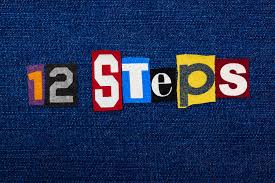24/7 Helpline:
(866) 899-111424/7 Helpline:
(866) 899-1114
Other Categories
Insurance Options

Horizon Healthcare Service

Sutter

Health Partners

Aetna

CareFirst

Absolute Total Care

BlueCross

State Farm

Cigna

GEHA

UMR

Molina Healthcare

Holman Group

Group Health Incorporated

Self-pay options

United Health Care

Anthem

Coventry Health Care

Ambetter

WellPoint
Other Category Rehabs You Might Like: Xanax Detox

HOPICS – South Broadway
5715 South Broadway Los Angeles CA, 90037

Tarzana Treatment Center – West Lancaster Boulevard
907 West Lancaster Blvd Lancaster CA, 93534

Teamsters Alcohol Rehab Program
Carpenter Rd 1620 N Suite C12 Modesto CA, 95351

Soledad House
810 Emerald Street 101 San Diego CA, 92109

Eternal Purpose Recovery Center
5819 Cleon Ave, North Hollywood, CA 91601

Tarzana Treatment Centers – Magnolia Avenue
2101 Magnolia Avenue Long Beach CA, 90806

Malibu Detox
22766 Saddle Peak Rd Topanga CA, 90290

El Cajon Treatment Clinic
234 North Magnolia Avenue El Cajon CA, 92020

Action Consultants Therapy
1670 Santa Ana Avenue Suites C, E, F and N Costa Mesa CA, 92627

El Dorado County Health and Human Services Alcohol and Drug Programs
1900 Lake Tahoe Boulevard South Lake Tahoe CA, 96150

BAART Programs
310 Harris Avenue Suite A Sacramento CA, 95838

Tarzana Treatment Center
320 East Palmdale Blvd Palmdale CA, 01121

Balance Treatment Center
4505 Las Virgenes Road Suite 202 Calabasas CA, 91302

Luxe Recovery
3787 Prestwick Dr Los Angeles CA, 90027

Tarzana Treatment Center
8330 Reseda Blvd Los Angeles CA, 91324

Sober College
6022 Variel Avenue Los Angeles CA, 91367

Consolidated Tribal Health Project
6991 North State Street Redwood Valley CA, 95470

Windward Way Recovery
2787 Bristol Street Costa Mesa CA, 92626

AEGIS – Marysville
201 D Street Suite G Marysville CA, 95901

Monte Nido – Eating Disorder Center of California
520 S Sepulveda Boulevard Los Angeles CA, 90049
Aftercare services play a vital role in the ongoing recovery journey of individuals overcoming addiction, especially for those who have participated in a 12 Step Rehab program. Once patients complete their primary treatment, transitioning back to everyday life can be challenging, and aftercare services provide essential support to ensure lasting sobriety. These services encompass a variety of programs, such as counseling sessions, support groups, sober living environments, and life skills training, all designed to facilitate a smooth reintegration into society while combating potential relapses. One of the primary benefits of aftercare services is the continued encouragement and guidance they offer. Regular counseling with addiction specialists helps individuals process their experiences and difficulties faced after treatment, fostering an environment where they can openly discuss their struggles and triumphs. Support groups based on the 12 Steps allow individuals to connect with peers who have walked a similar path, creating a sense of community and accountability that is crucial for maintaining sobriety. Furthermore, sober living environments provide a structured and supportive space that encourages safe practices while individuals adjust back to their normal lives. These environments are free from the triggers and negative influences associated with previous living situations, thus fostering a focused and recovery-oriented mindset. In addition, life skills training equips patients with the practical tools needed to navigate daily challenges without turning to substances, solidifying their commitment to sobriety. By actively participating in aftercare services, individuals establish a solid foundation for lasting freedom from addiction and build resilience against potential challenges. Ultimately, aftercare serves as a critical bridge between treatment and a healthful, substance-free life.

CED Mental Health Center Etowah
Located in Atalla, Alabama, CED Mental Health Center Etowah offers mental health and addiction treat...

Bradford Health Services
Bradford Health Services, located in Warrior, Alabama, provides addiction treatment programs, resour...

Pathfinder
Pathfinder is a drug and alcohol rehab facility for men based in Huntsville, Alabama. The facility d...

Impact Recovery Center Birmingham
Located in Odenville, Alabama, Impact Recovery Center- Birmingham offers alcohol and drug rehab trea...

The Harbor
The Harbor is an outpatient rehab located in Fairhope, AL. The Harbor specializes in the treatment o...

The Lovelady Center
The Lovelady Center, in Birmingham, Alabama, is a faith-based drug and alcohol rehab for adult women...

Southeast Intervention Group – Recovery
Southeast Intervention Group–Recovery, in Dothan, Alabama, provides faith-based mental and behaviora...

Nova Center Family Services
Nova Center Family Services is a drug and alcohol rehab in Huntsville, Alabama. They provide outpati...

ALR Sober Life – 2nd Avenue North
Located in Bessemer, Alabama, ALR Sober Life - 2nd Avenue North is an alcohol and drug rehab program...

Fellowship House
Located in Birmingham, Alabama, Fellowship House is an alcohol and drug rehab center that provides a...

AltaPointe – Adult Outpatient
AltaPointe – Adult Outpatient is a private rehab located in Mobile, Alabama. AltaPointe – Adult Outp...

Celebrate Recovery Birmingham
Celebrate Recovery Birmingham is a faith-based, 12 step-focused addiction treatment program for adul...

Waverly Residential Care Home – Mental Rehabilitation
Waverly Residential Care Home – Mental Rehabilitation is a public rehab located in Opelika, Alabama....

MedMark Treatment Centers
MedMark Treatment Centers in Oxford, Alabama offers drug rehab services to men and women. They speci...

Northwest Alabama Mental Health Center
Northwest Alabama Mental Health Center is a drug and alcohol rehab in Hamilton, Alabama. They provid...

Gateway – 20th Street South
Gateway, in Birmingham, Alabama, offers mental and behavioral health care for youth, adults, and fam...

Bradford Health Services
Bradford Health Services - College Street provides outpatient and intensive outpatient treatment for...

AltaPointe – Oasis Adult Intensive Outpatient
AltaPointe – Oasis Adult Intensive Outpatient is a private rehab located in Fairhope, Alabama. AltaP...

JBS Mental Health Authority
JBS Mental Health Authority is a public rehab located in Birmingham, Alabama. JBS Mental Health Auth...

Bradford Health Services
Bradford Health Services provides alcohol and drug rehab services to men and women throughout the co...

Northeast Alabama Regional Medical Center – Behavioral Health
Northeast Alabama Regional Medical Center - Behavioral Health, located in Anniston, Alabama, provide...

JBS Mental Health Authority – Day Treatment
JBS Mental Health Authority offers comprehensive, 12 step-focused psychiatric care and addiction rec...

Mobile Metro Treatment Center
Mobile Metro Treatment Center is an alcohol and drug rehab center in Mobile, Alabama providing addic...

East Alabama Mental Health Center – Russell County
East Alabama Mental Health Center - Russell County, located in Phenix City, Alabama, provides alcoho...

Indian Rivers Community Mental Health
Indian Rivers Community Mental Health offers addiction treatment to men and women suffering from sub...

Rehabilitation Services Department – Lakeshore Rehabilitation Facility
Rehabilitation Services Department–Lakeshore Rehabilitation Facility, in Birmingham, Alabama, offers...

Montgomery Area Mental Health Authority – Montgomery
Montgomery Area Mental Health Authority – Montgomery is a public rehab located in Montgomery, Alabam...

Bradford Health Services
Bradford Health Services - Energy Center Boulevard provides outpatient and intensive outpatient trea...

Gateway
Gateway is a private rehab located in Pelham, Alabama. Gateway specializes in the treatment of dual ...

East Alabama Medical Center of Psychiatric Medicine
East Alabama Medical Center of Psychiatric Medicine is a public rehab located in Opelika, Alabama. E...

West Alabama Mental Health Center
West Alabama Mental Health Center is a private rehab located in Demopolis, Alabama. West Alabama Men...

WellStone Behavioral Health
WellStone Behavioral Health is a public rehab in Huntsville, Alabama that specializes in substance a...

Mental Health Center of North Central Alabama – Moulton Lawrence Counseling Center
Mental Health Center of North Central Alabama – Moulton Lawrence Counseling Center is a private reha...

Cleburne Mental Health Center
Cleburne Mental Health Center is a private rehab located in Anniston, Alabama. Cleburne Mental Healt...

Dale Medical Center – New Day Psychiatric
Dale Medical Center is a mental health care facility and addiction recovery facility for adults in O...

BHG Huntsville Treatment Center
BHG Huntsville Treatment Center is a drug and alcohol rehab in Huntsville, Alabama. They provide out...

Laurel Oaks Behavioral Health Center
Laurel Oaks Behavioral Health Center provides comprehensive mental health and addiction recovery ser...

Baptist Meadhaven Addictive Disease Program
Baptist Meadhaven Addictive Disease Program is a private rehab located in Montgomery, Alabama. Bapti...

Alabama Teen Challenge – Men’s Induction Center South
Alabama Teen Challenge–Men’s Induction Center South is a faith-based residential drug and alcohol re...

SpectraCare
SpectraCare is a drug and alcohol rehab located in Geneva, Alabama. They provide outpatient addictio...

Olivias House
Located in scenic Birmingham, Alabama, Olivia’s House is a 12 step-focused drug and alcohol rehab fo...

The Bridge
The Bridge provides alcohol and drug rehab services to adolescents and adults in Cullman, Alabama. T...

AltaPointe – Outpatient Services – Clay County
AltaPointe – Outpatient Services – Clay County is a drug and alcohol rehab in Lineville, Alabama. Th...

Bradford Health Services – The Reprieve
Bradford Health Services – The Reprieve offers gender-specific substance abuse addiction treatment n...

Bradford Health Services – A Reprieve for Women
Bradford Health Services - A Reprieve for Women offers alcohol and drug rehab programs for women see...

Zukoski Outpatient
Zukoski Outpatient provides mental health care and addiction recovery services for adults in Birming...

CED Mental Health Center
CED Mental Health Center is an outpatient treatment facility that provides behavioral health service...

Haven
The Haven is a residential treatment facility located in Dothan, Alabama. The facility provides an i...

A New Beginning
A New Beginning is a facility designed for women who are in recovery and prefer to live with others ...

New Season – Montgomery Metro Treatment Center
New Season - Montgomery is an alcohol and drug rehab center serving the people of Montgomery, Alabam...

Shelby County Treatment Center
Shelby County Treatment Center is a private rehab located in Alabaster, Alabama. Shelby County Treat...

Lighthouse of Tallapoosa County
Lighthouse of Tallapoosa County is a non-profit rehab located in Alexander City, AL. Lighthouse of T...

Montgomery Area Mental Health Authority – Wetumpka
Montgomery Area Mental Health Authority - Wetumpka is an alcohol and drug rehab center that provides...

Capitol Care South – Adult Outpatient
Capitol Care South, in Birmingham, Alabama, provides outpatient mental and behavioral health care fo...

Shoals Treatment Center
Shoals Treatment Center is an alcohol and drug rehab center in Sheffield, Alabama that offers addict...

Eastside Center for Mental Health
Eastside Mental Health Center, in Birmingham, Alabama, offers outpatient psychiatric care and addict...

Moulton Lawrence Counseling Center
Moulton Lawrence Counseling Center is a drug and alcohol rehab and counseling center in Moulton, Ala...

Southeast Alabama Medical Center – Behavioral Medicine
Southeast Alabama Medical Center – Behavioral Medicine is a public rehab located in Dothan, Alabama....

Northwest Alabama Mental Health Center
Northwest Alabama Mental Health Center is a drug and alcohol rehab in Haleyville, Alabama. They prov...

UAB Community Psychiatry Program
UAB Community Psychiatry Program offers outpatient and community-based mental and behavioral health ...

Mental Health Center
Hale County Counseling Center is a drug and alcohol rehab in Greensboro, Alabama. They provide outpa...

Crestwood Medical Center – Behavioral Health
Crestwood Medical Center – Behavioral Health is a private rehab located in Huntsville, Alabama. Cres...

SpectraCare – Child & Adolescent Services
SpectraCare – Child & Adolescent Services is a private rehab located in Dothan, Alabama. SpectraCare...

Hill Crest Behavioral Health Services
Hill Crest Behavioral Health Services, in Birmingham, Alabama, provides comprehensive mental health ...

New Season – Birmingham Metro Treatment Center
New Season Birmingham Metro Treatment Center, located in Birmingham, Alabama, provides alcohol and d...

CED Fellowship House
CED Fellowship House offers co-occurring drug and alcohol addiction treatment for men in Gadsden, Al...

AltaPointe – Mental Health
AltaPointe–Mental Health offers outpatient psychiatric care and addiction recovery services for yout...

New Horizons Recovery
New Horizons Recovery is a drug and alcohol rehab in Huntsville, Alabama. They provide outpatient ad...

Mission of Hope
Mission of Hope is a faith-based residential addiction recovery program in Mobile, Alabama. Resident...

Anniston Fellowship House
Anniston Fellowship House is a private rehab located in Anniston, Alabama. Anniston Fellowship House...

Family Life Center
Located in Scottsboro, Alabama, Family Life Center is a non-profit alcohol and drug rehab and addict...

Canaan Land
Canaan Land, in Autaugaville, Alabama, is a faith-based residential drug and alcohol rehab for adult...

Riverbend Center for Mental Health – Substance Abuse
Riverbend Center for Mental Health - Substance Abuse is a counseling clinic located in Florence, AL....

Bradford Health Services
Bradford Health Services is an outpatient drug and alcohol rehab for adults in Birmingham, Alabama. ...

Chilton – Shelby Mental Health Center
Chilton-Shelby Mental Health Center offers treatment for mental health and chemical dependency. Chil...

Aletheia House – Men’s Services
Located in West Birmingham, Alabama, Aletheia House - Men’s Services is an alcohol and drug rehab ce...

East Alabama Mental Health – Addiction Center
The East Alabama Mental Health – Addiction Center is located in Opelika, Alabama, and provides patie...

Magnolia Creek Treatment Center for Eating Disorders
Magnolia Creek Treatment Center for Eating Disorders is a residential treatment program located in C...

Marion County Treatment Center
Marion County Treatment Center is a drug and alcohol rehab in Hamilton, Alabama. They provide outpat...

Family Life Center
Family Life Center is a drug and alcohol rehab in Guntersville, Alabama. They provide outpatient add...

Phoenix House
Phoenix House, located in Tuscaloosa, Alabama, is a transitional residential treatment program. This...

Home of Grace for Women
Home of Grace is a women’s program located in Eight Mile, Alabama that helps treat addiction. Their ...

Mary Starke Harper Geriatric Psychiatric Center
Mary Starke Harper Geriatric Psychiatric Center, located in Tuscaloosa, Alabama, is a residential tr...

Mission Teens – Restoration Ranch
Restoration Ranch is a non-denominational Christian Discipleship ministry located in Northport, AL. ...

Montgomery Area Crisis Residential Care
Montgomery Area Crisis Residential Care is a private rehab located in Montgomery, Alabama. Montgomer...

Freedom Center
Freedom Center is a drug and alcohol rehab and counseling center in Mobile, Alabama. They provide ou...

UAB Hospital – Psychiatric Medicine
UAB Hospital–Psychiatric Medicine provides comprehensive mental health and addiction recovery servic...

New Season – Tri County Treatment Center
Located in Birmingham, Alabama, New Season - Birmingham is an alcohol and drug rehab center. They of...

The Bridge
The Bridge is an outpatient facility that offers treatment for male and female adolescents that have...

The Ordinary People Society
The Ordinary People Society, in Dothan, Alabama, provides faith-based mental and behavioral health c...

Bradford Health Services
Bradford Health Services is a drug and alcohol rehab located in Mobile, Alabama. They provide outpat...

OMA – Outreach Ministries of Alabama
OMA - Outreach Ministries of Alabama, located in Valhermoso Springs, Alabama, provides alcohol and d...

Cahaba Center for Mental Health
Cahaba Center for Mental Health, located in Marion, Alabama, is a drug and alcohol rehab offering re...

NewLIfe for Women
NewLIfe for Women is a long-term, intensive, faith-based, experiential treatment program for women s...

AltaPointe – Outpatient Services – Bayou La Batre
AltaPointe–Outpatient Services, in Bayou La Batre, Alabama, offers mental health care and addiction ...

Decatur Health and Rehabilitation Center
Decatur Health and Rehabilitation Center provides comprehensive inpatient care for seniors in Decatu...

Mission Teens – Genesis MBTC
Genesis MBTC is a non-denominational Christian Discipleship ministry located in Northport, AL. Genes...

USA Psychology Clinic
USA Psychology Clinic is a drug and alcohol rehab and psychological clinic in Mobile, Alabama. They ...

The Foundry Ministries – Men’s Recovery Program
The Foundry Ministries–Recovery Center, in Bessemer, Alabama, is a faith-based drug and alcohol reha...

Harbor the Crisis Center
Harbor the Crisis Center is a private rehab located in Fairhope, Alabama. Harbor the Crisis Center s...

AltaPointe – BayView Professional Associates – Fairhope
AltaPointe – BayView Professional Associates – Fairhope is a private rehab located in Fairhope, Alab...

The Foundry Ministries – Recovery Center
The Foundry Ministries is a faith-based addiction treatment center for women, located in Bessemer, A...

Turning Point Foundation
Turning Point Foundation provides alcohol and drug rehab services to men seeking recovery in the Tho...

Behavioral Health Group – Huntsville
Behavioral Health Group – Huntsville is a private rehab located in Huntsville, Alabama. Behavioral H...

Chilton – Shelby Mental Health Center – Family & Youth
Chilton-Shelby Mental Health Center - Family & Youth offers treatment for mental health and chemical...

The Bridge
The Bridge is an outpatient alcohol and drug rehab for adolescents in Mobile, Alabama. They offer du...

West Alabama Mental Health Center – Walnut Ave
West Alabama Mental Health Center, in Demopolis, Alabama, offers outpatient psychiatric care and add...

Agape Family and Group Therapy
Oasis Counseling Services is a drug and alcohol rehab and counseling center in Madison, Alabama. The...

Bledsoe – State Rehabilitation
Bledsoe–State Rehabilitation, in Birmingham, Alabama, offers outpatient addiction recovery services ...

Rivers of Hope
Rivers of Hope is a private rehab located in Prattville, Alabama. Rivers of Hope specializes in the ...

Wings of Life Recovery
Wings of Life Recovery is a faith-based drug and alcohol addiction treatment center located in Mobil...

His Place
His Place, located in Opelika, Alabama, is a one-year men’s-only residential program for those strug...

Alano Club
Alano Club is a drug and alcohol rehab and support organization in Mobile, Alabama. They provide out...

Recovery Resources
Recovery Resources is a private rehab located in Mobile, Alabama. Recovery Resources specializes in ...

New Season – Mobile Metro Treatment Center
New Season – Mobile Metro Treatment Center is a drug and alcohol rehab in Mobile, Alabama. They prov...

Gadsden Psychological Services
Gadsden Psychological Services is a private rehab located in Gadsden, Alabama. Gadsden Psychological...

Therapy Options
Therapy Options is a private rehab located in Huntsville, Alabama. Therapy Options specializes in th...

Behavioral Health Group BHG – Tuscaloosa Treatment Center
Behavioral Health Group BHG - Tuscaloosa Treatment Center provides alcohol and drug rehab services t...

SouthEast Missouri Behavioral Health
Located in Opp, Alabama, is SouthEast Missouri Behavioral Health, a drug and alcohol rehab center th...

Bradford Health
Bradford Health Services provides outpatient and intensive outpatient treatment for individuals with...

Hope House
Since 2000, Hope House has been a faith-based rehab center in Oneonta, Alabama, that treats homeless...

Bradford Health Services
Bradford Health Services is a drug and alcohol rehab in Montgomery, Alabama. They provide outpatient...

Montgomery Area Mental Health Authority
Montgomery Area Mental Health Authority is a public rehab located in Prattville, Alabama. Montgomery...

SpectraCare – Intensive Outpatient
SpectraCare – Intensive Outpatient is a public rehab located in Abbeville, Alabama. SpectraCare – In...

AltaPointe – Outpatient Services
Located in Sylacauga, Alabama, AltaPointe - Outpatient Services provides alcohol and drug rehab serv...

Alsana
Alsana, in Birmingham, Alabama, provides comprehensive mental and behavioral health care for adults ...

AltaPointe – Adult Outpatient Services – West Mobile
AltaPointe – Adult Outpatient Services – West Mobile is a drug and alcohol rehab in Mobile, Alabama....

AltaPointe Health
AltaPointe Health, located in Mobile, Alabama, is a behavioral health center that provides addiction...

Jefferson County Substance Abuse Program – 4th Avenue North
Jefferson County Substance Abuse Program, in Bessemer, Alabama, provides outpatient addiction recove...

Army Substance Abuse Program – Aeromedical Center
Army Substance Abuse Program – Aeromedical Center is a public rehab located in Fort Rucker, Alabama....

SpectraCare
SpectraCare is a public rehab located in Eufaula, Alabama. SpectraCare specializes in the treatment ...

Cheaha Mental Health
Cheaha Mental Health is a private rehab located in Roanoke, Alabama. Cheaha Mental Health specialize...

Family Life Center
Family Life Center is a faith-based drug and alcohol rehab for adults in Centre, Alabama. They offer...

Marshall Medical Center – Behavioral Health
Marshall Medical Center offers behavioral health treatment for adults living with mental illness in ...

The Bridge
The Bridge provides a wide variety of alcohol and drug rehab services to individuals struggling with...

Riverbend Center for Mental Health
Riverbend Center for Mental Health, located in Russellville, Alabama, provides alcohol and drug reha...

Spectrum Services
Spectrum Services is a private rehab located in Huntsville, Alabama. Spectrum Services specializes i...

Grandview Behavioral Health Center
Grandview Behavioral Health Center is a drug and alcohol rehab and medical facility in Gadsden, Alab...

Rapha Treatment
Rapha Treatment is a private, non-profit drug and alcohol rehab in Attalla, Alabama. They offer inpa...

Christian Counseling Center
Christian Counseling Center is a drug and alcohol rehab and counseling center in Mobile, Alabama. Th...

The Dannon Project
The Dannon Project, in Birmingham, Alabama, provides 12 step-focused addiction recovery programs for...

Mental Health Center – Albany Clinic
Mental Health Center–Albany Clinic provides outpatient psychiatric care and addiction recovery servi...

AltaPointe – BayView Professional Associates – Mobile
AltaPointe – BayView Professional Associates – Mobile is a drug and alcohol rehab center in Mobile, ...

The Salvation Army – Corps Salvage and Rehabilitation Center
The Salvation Army - Corps Salvage and Rehabilitation Center is a drug and alcohol rehab in Huntsvil...

New Season – Huntsville Metro Treatment Center
New Season – Huntsville Metro Treatment Center is a drug and alcohol rehab located in Huntsville, Al...

AltaPointe – Outpatient Services – Chatom
AltaPointe – Outpatient Services – Chatom is a private rehab located in Chatom, Alabama. AltaPointe ...

The Bridge – Newman Road
The Bridge – Newman Road is a drug and alcohol rehab for adults and adolescents with substance use d...

Mountain Lakes Behavioral Healthcare
Mountain Lakes Behavioral Healthcare is a drug and alcohol rehab located in Guntersville, AL. They p...

Wellstone – Cullman Area Mental Health
Wellstone–Cullman Area Mental Health, in Cullman, Alabama, provides outpatient addiction recovery se...

AltaPointe – Outpatient Services
AltaPoint–Outpatient Services, in Bay Minette, Alabama, provides mental health and addiction recover...

UAB Center for Psychiatric Medicine
UAB Center for Psychiatric Medicine, in Birmingham, Alabama, offers comprehensive mental health and ...

MedMark Treatment Centers
MedMark Treatment Center is a private rehab center situated in Newton, Alabama, that specializes in ...

The Highlands Treatment Center
The Highlands Treatment Center is located in Birmingham, Alabama and provides treatment for eating d...

AA – Alcoholics Anonymous
AA – Alcoholics Anonymous is a non-profit rehab located in Andalusia, Alabama. AA – Alcoholics Anony...

Gadsden Treatment Center
Gadsden Treatment Center is a drug and alcohol rehab in Gadsden, Alabama. They provide outpatient ad...

AA – Alcoholics Anonymous
AA - Alcoholics Anonymous, located in Sylvania, Alabama, provides alcohol and drug rehab programming...

Mountain Lakes Behavioral Healthcare – Cedar Lodge
Mountain Lakes Behavioral Healthcare – Cedar Lodge provides consumer-sensitive, outcome-oriented, be...

West Alabama Mental Health Center – Springhill Home
West Alabama Mental Health Center–Springhill Home, in Demopolis, Alabama, provides psychiatric care ...

Army Substance Abuse Program – ASAP
Army Substance Abuse Program – ASAP is a public rehab located in Huntsville, Alabama. Army Substance...

AA – Alcoholics Anonymous – Central Office
AA Alcoholics Anonymous - Central Office, located in Mobile, Alabama, is available to anyone who wan...

AA – Alcoholics Anonymous – Central Office
AA – Alcoholics Anonymous – Central Office is a drug and alcohol recovery support group in Huntsvill...

Pathway Healthcare
Pathway Healthcare, located in Birmingham, Alabama, offers alcohol and drug rehab services, mental h...

Chilton Shelby Mental Health Center – Mitchell Center
Chilton Shelby Mental Health Center–Mitchell Center provides comprehensive psychiatric care and addi...

Freedom House Outpatient
Freedom House Outpatient, located in Russellville, Alabama, offers alcohol and drug rehab services t...

Huntsville Madison County Mental Health
Huntsville Madison County Mental Health is a non-profit rehab located in Huntsville, Alabama. Huntsv...

AA – Alcoholics Anonymous – JAFI Bham
Alcoholics Anonymous (AA)--JAFI provides 12 step-focused addiction recovery services for adults in B...

Saving Grace Home for Women
Saving Grace Home for Women is a private rehab located in Robertsdale, Alabama. Saving Grace Home fo...

Indian Rivers Mental Health Center – Courthouse Square
Indian Rivers Mental Health Center–Courthouse Square, in Carrollton, Alabama, offers comprehensive p...

Agency for Substance Abuse
Agency for Substance Abuse is a private rehab located in Anniston, Alabama. Agency for Substance Abu...

Mental Health Center
Mental Health Center is a private rehab located in Eutaw, Alabama. Mental Health Center specializes ...

Helping Partners
Helping Partners is a private rehab located in Anniston, Alabama. Helping Partners specializes in th...

Henry County Day Treatment
Henry County Day Treatment is a public rehab located in Abbeville, Alabama. Henry County Day Treatme...

Mental Health Center
Mental Health Center is a private rehab located in Livingston, Alabama. Mental Health Center special...

AltaPointe – Zeigler Outpatient
AltaPointe – Zeigler Outpatient is a drug and alcohol rehab located in Mobile, Alabama. They provide...

Northwest Alabama Mental Health Center
Northwest Alabama Mental Health Center, located in Vernon, Alabama, provides mental health treatment...

AltaPointe – Talladega Outpatient
Located in Talladega, Alabama, AltaPointe - Talladega Outpatient offers alcohol and drug rehab servi...

East Central Mental Health
East Central Mental Health, located in Troy, Alabama, offers alcohol and drug rehab services to men ...

Clean and Sober Recovery Homes
Clean and Sober Recovery Homes is a private rehab located in Mobile, Alabama. Clean and Sober Recove...

Outpatient Recovery Group
Outpatient Recovery Group is a private rehab located in Gadsden, Alabama. Outpatient Recovery Group ...

Cherokee County Alcoholism
Cherokee County Alcoholism–Substance Abuse Council, in Centre, Alabama, offers addiction recovery se...

Truth in Love Ministries
Truth in Love Ministries is a faith-based drug and alcohol rehab for adults in Birmingham, Alabama. ...

Sunrise Lodge – Substance Abuse Treatment Center
Riverbend Center for Mental Health, formerly known as Sunrise Lodge, provides professional medical a...

Mountain Lakes Behavioral Healthcare – Dutton Homes
Mountain Lakes Behavioral Healthcare - Dutton Homes is a residential program for individuals from Ja...

Baldwin County Mental Health Center
Baldwin County Mental Health Center is a private rehab located in Fairhope, Alabama. Baldwin County ...

New Life for Women
New Life for Women is a drug and alcohol rehab in Gadsden Alabama. They provide residential addictio...

Jefferson County Substance Abuse Program – 2nd Avenue North
Jefferson County Substance Abuse Program provides addiction recovery services for adults in Birmingh...

Chemical Addictions Program – Adolescent Outpatient
Chemical Addictions Program – Adolescent Outpatient is a private rehab located in Prattville, Alabam...

Quest Adolescent Intensive Outpatient Program
Quest Adolescent Intensive Outpatient Program is a private rehab located in Decatur, Alabama. Quest ...

Chilton – Shelby Mental Health Center
Chilton Shelby Mental Health Center, in Clanton, Alabama, provides comprehensive psychiatric care an...

Bridge Drug Counseling Center
Bridge Drug Counseling Center, in Decatur, Alabama, offers mental and behavioral health care service...

Focus on Recovery
Focus on Recovery is a non-profit rehab located in Hoover, Alabama. Focus on Recovery specializes in...

Faith Crusades Homes
Faith Crusades Homes is a private rehab located in Montgomery, Alabama. Faith Crusades Homes special...

Indian Rivers Mental Health Center – Reform Street
Indian Rivers Mental Health Center–Reform Street offers psychiatric care and addiction recovery serv...

Mental Health Center
West Alabama Mental Health Center, in Butler, Alabama, provides outpatient mental health and addicti...

Gulf Coast Treatment Center
Gulf Coast Treatment Center is a drug and alcohol rehab in Grand Bay, Alabama. They provide outpatie...

West Alabama Mental Health – Lloyd Matthews Watkins Life Skills Center
West Alabama Mental Health Center–Lloyd Matthews Watkins Life Skills Center provides mental and beha...

Second Choice
Second Choice is a private rehab located in Mobile, Alabama. Second Choice specializes in the treatm...

Rehabilitation Day Program – Jasper House
Located in Birmingham, Alabama, Rehabilitation Day Program – Jasper House offers mental health treat...

SpectraCare – Day Treatment
SpectraCare–Day Treatment provides outpatient mental health and addiction recovery services for adul...

Self Recovery
Self Recovery is a private rehab located in Oxford, Alabama. Self Recovery specializes in the treatm...

Anniston Rehabilitation Center
Anniston Rehabilitation Center is a private rehab located in Anniston, Alabama. Anniston Rehabilitat...

Mountain Lakes Behavioral Healthcare
Located in Scottsboro, Alabama, Mountain Lakes Behavioral Healthcare offers mental health and alcoho...

Southeast Substance Abuse and Recovery Consultants
Southeast Substance Abuse and Recovery Consultants provides mental and behavioral health care for ad...

Alabama Psychological Services Center
CMPS – Huntsville is a drug and alcohol rehab in Huntsville, Alabama. Their services are offered on ...

Montgomery Area Mental Health Authority – Hayneville
Carastar Health – Hayneville is a drug and alcohol rehab located in Hayneville, Alabama. They provid...

Recovery Center
Recovery Center offers alcohol and drug rehab treatment services to men and women seeking recovery i...

Chemical Addictions Program
Chemical Addictions Program is a non-profit rehab located in Montgomery, Alabama. Chemical Addiction...

Gardenia CRF
Gardenia CRF is a public rehab located in Mobile, Alabama. Gardenia CRF specializes in the treatment...

Celebrate Recovery Tuscaloosa
Celebrate Recovery Tuscaloosa is a non-profit rehab located in Northport, Alabama. Celebrate Recover...

The Oakmont Center
The Oakmont Center is a private rehab located in Birmingham, Alabama. The Oakmont Center specializes...

Alconon Club
Alconon Club is a non-profit rehab located in Tuscaloosa, Alabama. Alconon Club specializes in the t...

The Bridge
The Bridge is an outpatient facility that offers treatment for male and female adults that have a su...

Cahaba Center for Mental Health – Goodwin
Located in Selma, Alabama, Cahaba Center for Mental Health - Goodwin offers a wide variety of servic...

Northwest Alabama Mental Health Center
Northwest Alabama Mental Health Center, located in Winfield, Alabama, offers alcohol and drug rehab ...

University of Alabama at Birmingham – Addiction Treatment
University of Alabama at Birmingham (UAB)–Addiction Treatment provides outpatient care for adolescen...

Chilton County Treatment Center
Chilton County Treatment Center, in Clanton, Alabama, is a 12 step-focused outpatient drug rehab for...

Alabama Rehabilitation Works
Alabama Rehabilitation Works is a private rehab located in Florence, Alabama. Alabama Rehabilitation...

Indian Rivers Mental Health Center
Indian Rivers Mental Health Center offers comprehensive psychiatric care and addiction recovery serv...

The Bridge Group
The Bridge Group is a private rehab located in Huntsville, Alabama. The Bridge Group specializes in ...

Cullman County Treatment Center
Cullman County Treatment Center is an outpatient drug and alcohol rehab for adults in Cullman, Alaba...

Family Life Center
Family Life Center is a faith-based, 12 step-focused drug and alcohol rehab for adults in Decatur, A...

Meadhaven Addictive Disease
Meadhaven Addictive Disease is a private rehab located in Montgomery, Alabama. Meadhaven Addictive D...

CED Mental Health Center
CED Mental Health Center provides psychiatric care and addiction recovery services for youth and adu...

Chemical Addictions Program – Adult Outpatient
Chemical Addictions Program – Adult Outpatient is a private rehab located in Prattville, Alabama. Ch...

Serenity Care
Serenity Care, located in Mobile, Alabama, is a drug and alcohol rehab center for men. They provide ...

North Alabama Rehabilitation
North Alabama Rehabilitation is a private rehab located in Huntsville, Alabama. North Alabama Rehabi...

Gateway – Airport Highway
Gateway–Airport Highway provides mental and behavioral health care for youth and adults in Birmingha...

SpectraCare – Day Treatment
SpectraCare – Day Treatment is a public rehab center that specializes in providing outpatient treatm...

Etowah Rehabilitation Services
Etowah Rehabilitation Services is a private rehab located in Gadsden, Alabama. Etowah Rehabilitation...

Insight Treatment Program
Founded in 1993, the Insight Treatment Program offers professional substance abuse services to indiv...

Baptist Medical Center South – Crossbridge Behavioral Health
Baptist Medical Center South – Crossbridge Behavioral Health is a drug and alcohol rehab in Montgome...

BHG Stevenson Treatment Center
BHG Stevenson Treatment Center, located in Stevenson, Alabama, is an alcohol and drug rehab program ...

AA – Alcoholics Anonymous
AA – Alcoholics Anonymous is a non-profit rehab located in Albertville, Alabama. AA – Alcoholics Ano...

The Bridge
The Bridge is a nonprofit mental health and substance abuse treatment center located in Gadsden, Ala...

Bradford Health Services
Bradford Health Services is a drug and alcohol rehab in Huntsville, Alabama. They provide two levels...

Crossroads to Recovery Ministries
Crossroads to Recovery Ministries is a private rehab located in Montgomery, Alabama. Crossroads to R...

Bradford Health Services
Bradford Health Services - Adris Place provides outpatient and intensive outpatient treatment for in...

AA – Alcoholics Anonymous
AA - Alcoholics Anonymous in Tuscaloosa, Alabama is a peer-led alcohol and drug rehab program that o...

AA – Alcoholics Anonymous
AA – Alcoholics Anonymous is a drug and alcohol rehab and support group in Mobile, Alabama. They pro...

AltaPointe – Randolph County Outpatient
AltaPointe – Randolph County Outpatient is a dual diagnosis rehab center in Roanoke, Alabama, that t...

Lighthouse Counseling Center – Outpatient
Lighthouse Counseling Center – Outpatient is a private rehab located in Montgomery, Alabama. Lightho...

Lighthouse
Lighthouse is a non-profit rehab located in Cullman, Alabama. Lighthouse specializes in the treatmen...

Substance Abuse Clinic UAB
The Substance Abuse Clinic–UAB provides integrative addiction recovery services for youth and adults...

South Central Alabama CMHC
South Central Alabama CMHC is a private rehab located in Andalusia, Alabama. South Central Alabama C...

Bradford Health Services
Bradford Health Services provides comprehensive addiction recovery programs for adults in Birmingham...

Cahaba Center for Mental Health – Hilltop
Located in Selma, Alabama, Cahaba Center for Mental Health - Hilltop provides mental health treatmen...

AA – Alcoholics Anonymous
Alcoholics Anonymous (AA) is a 12 step-focused drug and alcohol rehab for youth and adults in Birmin...

AA – Alcoholics Anonymous
AA – Alcoholics Anonymous is a non-profit rehab located in Arab, Alabama. AA – Alcoholics Anonymous ...

Cahaba Center for Mental Health
Cahaba Center for Mental Health, in Camden, Alabama, provides community-based mental health and addi...

AA – Alcoholics Anonymous
Alcoholics Anonymous (AA) is a community-based, 12 step-focused addiction recovery program for youth...

AA – Alcoholics Anonymous
Alcoholics Anonymous (AA) is a 12 step-focused, community-based drug and alcohol rehab program for y...

AA – Alcoholics Anonymous – Chisholm Group
AA – Alcoholics Anonymous – Chisholm Group is a non-profit rehab located in Montgomery, Alabama. AA ...

Rehabilitation Center of East Alabama
Rehabilitation Center of East Alabama is a private rehab located in Opelika, Alabama. Rehabilitation...

Substance Abuse Council
Substance Abuse Council is a private rehab located in Gadsden, Alabama. Substance Abuse Council spec...

Quest Recovery Center
Quest Recovery Center is a private rehab located in Decatur, Alabama. Quest Recovery Center speciali...

Chilton Shelby Mental Health Center – J Michael Horsley Home
Chilton Shelby Mental Health Center–J. Michael Horsley Home provides comprehensive psychiatric care ...

Excel Institute
Excel Institute is a private rehab located in Gadsden, Alabama. Excel Institute specializes in the t...

New Life Outreach International
New Life Outreach International is a private rehab located in Huntsville, Alabama. New Life Outreach...

Trinity Medical Center – Behavioral Health
Trinity Medical Center–Behavioral Health, in Birmingham, Alabama, offers comprehensive mental and be...

Athens Limestone Counseling Center
Athens Limestone Counseling Center is a private rehab located in Athens, Alabama. Athens Limestone C...

The Thomas Group
The Thomas Group is a private rehab located in Florence, Alabama. The Thomas Group specializes in th...

Narcotic Drug Treatment Center – NDTC
Narcotic Drug Treatment offers alcohol and drug rehab treatment services to men and women suffering ...

Family Life Center
Family Life Center is a drug and alcohol rehab in Huntsville, Alabama. They provide outpatient addic...

Saint Clair County Community Mental Health
Saint Clair County Community Mental Health is a private rehab located in Pell City, Alabama. Saint C...

Morgan Counseling Center
Morgan Counseling Center, in Decatur, Alabama, provides outpatient mental health and addiction recov...

ForeverWell
ForeverWell is a private rehab located in Ardmore, Alabama. ForeverWell specializes in the treatment...

Serenity House Behavioral Health Services
Serenity House Behavioral Health Services is a private rehab located in Soldotna, Alaska. Serenity H...

Janus CRF
Janus CRF is a comprehensive drug and alcohol rehab for adolescents and adults in Decatur, Alabama o...

Family Life Center
Family Life Center is a non-profit rehab located in Athens, Alabama. Family Life Center specializes ...

Alabama State – Rehabilitation Services Department
Alabama State - Rehabilitation Services Department provides a wide variety of services to men and wo...

DISC Village Sisters In Sobriety
DISC Village Sisters In Sobriety is a private rehab located in Enterprise, Alabama. DISC Village Sis...

Rehabilitation Associates
Rehabilitation Associates is a private rehab located in Montgomery, Alabama. Rehabilitation Associat...

Mountain Lakes Behavioral Healthcare – Jackson Place
Mountain Lakes Behavioral Healthcare - Jackson Place offers alcohol and drug rehab programming to me...

Oxford House Catalyst
Oxford House Catalyst, located in Montgomery, Alabama, is a democratically-run, self-supporting, and...

Genesis MBTC
Genesis MBTC, also known as Mission Teens, is a non-denominational Christian discipleship ministry l...

Champion Partners
Champion Partners is a private rehab located in Tuscaloosa, Alabama. Champion Partners specializes i...

We Are Women
We Are Women is a private rehab located in Montgomery, Alabama. We Are Women specializes in the trea...

Freedom House
The Freedom House is a private rehab located in Rogersville, Alabama. They provide treatment for men...

Chilton Shelby Mental Health Center – Carrie Gray Home
Chilton Shelby Mental Health Center–Carrie Gray Home, in Clanton, Alabama, offers comprehensive psyc...

CED Mental Health Center
CED Mental Health Center provides addiction recovery services for youth and adults in Attalla, Alaba...

Chilton – Shelby Mental Health Center – Hamilton Center
Chilton Shelby Mental Health Center–Hamilton Center, in Calera, Alabama, provides psychiatric care a...

Bradford Health Services
Bradford Health Services provides outpatient and intensive outpatient treatment for individuals with...

Walker Recovery Center
Walker Recovery Center is a drug and alcohol rehab in Jasper, Alabama. They provide outpatient addic...

Highland Health Systems – New Directions
Highland Health Systems - New Directions is a rehab center that offers outpatient treatment services...

Opelika Treatment Center
Opelika Treatment Center is a private rehab located in Opelika, Alabama. Opelika Treatment Center sp...

Rehabilitation Associates – Carmichael Court
Rehabilitation Associates – Carmichael Court is a private rehab located in Montgomery, Alabama. Reha...

East Central Mental Health
East Central Mental Health offers programming for individuals living with disabilities in Union Spri...

South Central Alabama Mental Health
South Central Alabama Mental Health is a non-profit facility located in Andalusia, Alabama. South Ce...

AltaPointe – Outpatient Services – Mobile
AltaPointe – Outpatient Services – Mobile is a drug and alcohol rehab in Mobile, Alabama. They provi...

Cahaba Center for Mental Health
Located in Selma, Alabama, Cahaba Center for Mental Health offers mental illness treatment and disab...

Northwest Alabama Treatment Center
Northwest Alabama Treatment Center (NATC) is an outpatient drug and alcohol rehab for adolescents an...

Fairbanks Native Association – Ralph Perdue Center
Fairbanks Native Association – Ralph Center offers substance abuse treatment for Alaska Natives and ...

Alabama Recovery Center
Alabama Recovery Center is a private rehab located in Huntsville, Alabama. Alabama Recovery Center s...

Roads To Recovery Treatment Services
Roads To Recovery Treatment Services is a private rehab located in Florence, Alabama. Roads To Recov...

JAMHI Health and Wellness Midtown Clinic
JAMHI Health and Wellness Midtown Clinic is a private rehab located in Juneau, Alaska. JAMHI Health ...

Alaska Addiction Rehabilitation Services
Located in Wasilla, Alaska, Alaska Addiction Rehabilitation is an alcohol and drug rehab program tha...

Chilton Shelby Mental Health Center – Katherine Vickery Home
Chilton Shelby Mental Health Center–Katherine Vickery Home provides psychiatric care and addiction r...

Chilton Shelby Mental Health Center – Richard L Parris Home
Chilton Shelby Mental Health Center–Richard L. Parris Home, in Calera, Alabama, offers comprehensive...

Aleut Community of Saint Paul Island
Aleut Community of Saint Paul Island is a public rehab located in Saint Paul Island, Alaska. Aleut C...

Chilton Shelby Mental Health Center – Civitan Home
Chilton Shelby Mental Health Center–Civitan Home provides comprehensive psychiatric care and addicti...

Copper River Native Association – Behavioral Health
Copper River Native Association - Behavioral Health, located in Copper Center, Alaska, offers treatm...

Anchorage Treatment Solutions
Anchorage Treatment Solutions provides clients with comprehensive substance abuse treatment services...

Cheaha Regional Mental Health Center – Caradale Lodge
Cheaha Regional Mental Health - Caradale Lodge, located in Sylacauga, Alabama, offers alcohol and dr...

Bicycle Health – Alabama
Bicycle Health – Alabama is a drug and alcohol rehab in Montgomery, Alabama. They provide outpatient...

Akeela – Akeela House Recovery Center
Akeela - Akeela House Recovery Center is an alcohol and drug rehab center that provides addiction tr...

Interior Aids Association
Interior AIDS Association, in Fairbanks, Alaska, is an outpatient drug rehab for adults in opioid re...

Kenaitze Indian Tribe – Dena’ina Wellness Center
Kenaitze Indian Tribe- Dena’ina Center in Kenai, Alaska offers alcohol and drug rehab services to me...

Elk River Treatment Program
Elk River Treatment Program is a residential drug and alcohol rehab center located in Huntsville, Al...

Teen Challenge
Teen Challenge- Wasilla offers alcohol and drug rehab services to adult men in Wasilla, Alaska. They...

New Season – Meridian Treatment Center
New Season - Meridian Treatment Center is a private rehab located in Meridianville, AL. New Season -...

Alaska Family Services – Behavioral Health Treatment Center
Wasilla's Alaska Family Services- Behavioral Health is an alcohol and drug addiction treatment cente...

Volunteers of America – ARCH
Volunteers of America- ARCH is an alcohol and drug rehab service in Anchorage, Alaska that is design...

UAB Addiction Recovery Program
UAB Addiction Recovery Program provides comprehensive mental and behavioral health care for youth an...

Cook Inlet Tribal Council – CITC
Cook Inlet Tribal Council - CITC, located in Anchorage, Alaska, provides alcohol and drug rehab serv...

AltaPointe – Outpatient Services – McKinney Center
AltaPointe – Outpatient Services – McKinney Center is a drug and alcohol rehab in Lineville, Alabama...

AltaPointe – Children’s Outpatient
AltaPointe – Children’s Outpatient is a drug and alcohol rehab in Mobile, Alabama. They provide outp...

Cogburn Health and Rehabilitation Midtown
Cogburn Health and Rehabilitation Midtown is a private rehab located in Mobile, Alabama. Cogburn Hea...

Aletheia House – Women’s and Wellness Services
Aletheia House Women’s and Wellness Services is a drug and alcohol rehab facility in Birmingham, AL....

Anchorage Comprehensive Treatment Center
Located in Anchorage, Alaska, Anchorage Comprehensive Treatment Center offers alcohol and drug rehab...

Set Free Alaska
Set Free Alaska, located in Wasilla, Alaska, is a faith-based, 12-Step drug and alcohol rehab for ad...

AA – Alcoholics Anonymous
AA – Alcoholics Anonymous is a non-profit rehab located in Eufaula, Alabama. AA – Alcoholics Anonymo...

AltaPointe – Outpatient Services – Burton Center
AltaPointe Outpatient Center - Burton Center offers alcohol and drug rehab services to men and women...

AltaPointe – Outpatient Services
AltaPointe, located in Foley, Alabama, offers mental health and behavioral health services to adults...

Eastern Aleutian Tribes
Eastern Aleutian Tribes provides outpatient mental health and addiction recovery services for youth ...

Copper River Native Association
Copper River Native Association, located in Copper Center, Alaska, offers mental health treatment an...

SEARHC – Raven’s Way
SEARHC – Raven’s Way provides 12-Step addiction recovery services for youth between the ages of 13 a...

Alaska Family Services
Alaska Family Services, located in Palmer, Alaska, offers comprehensive mental health care and addic...

Behavioral Health Services
Family Centered Services of Alaska (FCSA) - Wasilla Behavioral Health Services offers mental health ...

Ninilchik Traditional Council
Ninilchik Traditional Council offers outpatient mental and behavioral health care for youth and adul...

Tanana Chiefs Conference
Tanana Chiefs Conference, in Fairbanks, Alaska, offers comprehensive, culturally responsive mental a...

Bridges Counseling Conections
Bridges Counseling Connections is a mental health treatment center in Anchorage, Alaska that provide...

Discovery Cove Recovery and Wellness Center
Discovery Cove Recovery and Wellness Center provides outpatient mental health and addiction recovery...

Nugen’s Ranch
Nugen’s Ranch is located on 116 acres of land that is owned by Alaska Addiction Rehabilitation Servi...

Ketchikan Indian Community – Behavioral Health
Ketchikan Indian Community – Behavioral Health, in Ketchikan, Alaska, provides culturally-responsive...

Turning Point Counseling Services
Turning Point Counseling Services offers outpatient services for individuals with alcohol and/or sub...

Southeast Rehabilitation Services
Southeast Rehabilitation Services is a private rehab located in Juneau, Alaska. Southeast Rehabilita...

Akeela
Akeela offers outpatient and inpatient programs for individuals dealing with substance addiction and...

Set Free Alaska
Set Free Alaska provides faith-based, trauma-informed mental health and addiction recovery services ...

Akeela
Akeela provides comprehensive mental health and addiction recovery services for youth and adults in ...

Alaska DHSS – Divison of Behavioral Health
Alaska DHSS–Division of Behavioral Health, in Juneau, Alaska, provides comprehensive mental health a...

Drug and Alcohol Rehabilitation
Drug and Alcohol Rehabilitation, located in Anchorage, Alaska, provides alcohol and drug rehab servi...

CICADA Kenai Office
CICADA Kenai Office, located in Kenai, Alaska, offers outpatient mental health and addiction recover...

Providence Alaska Medical Center – Behavioral Health
Providence Alaska Medical Center - Behavioral Health, located in Anchorage, Alaska, provides behavio...

TCC Upper Tanana Behavioral Health
TCC Upper Tanana Behavioral Health, located in Tok, Alaska, provides culturally-responsive mental he...

Hats of Wisdom
Hats of Wisdom provides mental health treatment to men and women seeking recovery in the Delta Junct...

Seven Secrets Counseling & Social Skills
Seven Secrets Counseling & Social Skills provides mental and behavioral health care for youth and ad...

Alaska Wisdom Recovery
Alaska Wisdom Recovery, located in Wasilla, Alaska, provides mental health and addiction recovery se...

Jett Morgan Recovery
Jett Morgan Treatment Services offers outpatient services for individuals with alcohol and/or substa...

Council of Athabascan Tribal Government
Council of Athabascan Tribal Government offers integrative mental and behavioral health care service...

Maniilaq Association
Maniilaq Association, located in Kotzebue, Alaska, provides mental health and addiction recovery ser...

Youth Advocates of Sitka
Youth Advocates of Sitka provides comprehensive mental and behavioral health care in Sitka, Alaska f...

Shades Of Growth Substance Abuse Counseling
Shades Of Growth Substance Abuse Counseling is a private rehab located in Fairbanks, Alaska. Shades ...

Lynn Canal Counseling
Lynn Canal Counseling/SEARHC Behavioral Health Programs provides mental health and addiction recover...

Bible Baptist Church – Reformers Unanimous
Bible Baptist Church – Reformers Unanimous is a non-profit rehab located in Fairbanks, Alaska. Bible...

Nakenu Family Center
Nakenu Family Center, located in Kenai, Alaska, offers mental and behavioral health care for America...

Metlakatla Indian Community
Metlakatla Indian Community provides culturally-responsive mental health and addiction recovery prog...

Cook Inlet Tribal Center – Ernie Turner Center
Cook Inlet Tribal Center - Ernie Turner Center, located in Anchorage, Alaska, is an alcohol and drug...

Fairbanks Community Mental Health Services
Fairbanks Community Mental Health Services offers outpatient psychiatric care and addiction recovery...

Shades Of Growth
Shades Of Growth is a private rehab located in Fairbanks, Alaska. Shades Of Growth specializes in th...

Gastineau Human Services
Gastineau Human Services, in Juneau, Alaska, provides comprehensive mental health and addiction reco...

AK Child and Family – Maley Center
AK Child and Family - Maley Center offers behavioral health care to youth and their families in Anch...

Alaska VA Healthcare and Behavioral Health Services
Alaska VA Healthcare and Behavioral Health Services provides mental health treatment and dual diagno...

Aleut Community of Saint Paul Island
Aleut Community of Saint Paul Island offers culturally-responsive outpatient mental and behavioral h...

Denali Family Services
Denali Family Services (DFS), located in Wasilla, Alaska, provides mental and behavioral health care...

Providence Valdez Counseling Center
Providence Valdez Counseling Center offers outpatient mental health and addiction recovery services ...

Railbelt Mental Health and Addictions
Railbelt Mental Health and Addictions, located in Nenana, Alaska, offers mental and behavioral healt...

Behavorial Rehabilitation Services Center
The Youth Advocates of Sitka – Hanson House, formerly known as Behavioral Rehabilitation Services Ce...

Hope Community Resources
Hope Community Resources, located in Anchorage, Alaska, offers alcohol and drug rehab services, dual...

Petersburg Mental Health Services
Petersburg Mental Health Services provides outpatient care for youth and adults experiencing mental ...

South Peninsula Behavioral Health Services
South Peninsula Behavioral Health Services provides comprehensive mental health and addiction recove...

Good Samaritan Psychiatric Services
Good Samaritan Psychiatric Services offers mental health treatment services in Anchorage, Alaska. If...

Women’s and Childrens Center
Women’s and Children’s Center, in Fairbanks, Alaska, is a long-term residential addiction recovery f...

Fairbanks Memorial Hospital – Behavioral Health
Fairbanks Memorial Hospital–Behavioral Health provides mental health and addiction recovery services...

Kodiak Area Native Association
Kodiak Area Native Association (KANA) provides integrative mental and behavioral health care for you...

AA – Alcoholics Anonymous
Alcoholics Anonymous (AA) is a 12 step-focused, community-based addiction recovery program for youth...

AA – Alcoholics Anonymous
AA - Alcoholics Anonymous in Juneau, Alaska is a 12-Step addiction recovery program for youth and ad...

Community Connections – Ketchikan
Community Connections – Ketchikan offers comprehensive mental and behavioral health care for youth a...

Adult Services – Anchorage Community Mental Health
Adult Services - Anchorage Community Mental Health, located in Anchorage, Alaska, provides alcohol a...

Daybreak
Daybreak, located in Palmer, Alaska, offers comprehensive case management services for youth and adu...

Seaview Community Services
SeaView Community Services, located in Seward, Alaska, provides comprehensive, 12-Step addiction rec...

AA – Alcoholics Anonymous
AA - Alcoholics Anonymous in Valdez, Alaska is a 12-Step addiction recovery program for youth and ad...

AA – Alcoholics Anonymous
AA - Alcoholics Anonymous is a no-cost, 12-Step addiction recovery program for youth, adults, and fa...

Ernie Turner Center
The Ernie Turner Center in Anchorage, Alaska, is an inpatient drug and alcohol rehab for adults. The...

Partners Reentry Center
Partners Reentry Center is a reentry program in Anchorage, Alaska that provides a wide variety of se...

No Limits
No Limits provides comprehensive mental and behavioral health care and social support services for m...

AA – Alcoholics Anonymous
AA - Alcoholics Anonymous in Seward, Alaska is a 12-Step addiction recovery program for youth and ad...

Alaska Islands Community Services – Integrated Behavorial Health Program
Alaska Island Community Services - Behavioral Health Program is a private rehab located in Wrangell,...

Sitka Counseling
Sitka Counseling provides comprehensive mental health and addiction recovery services for youth and ...

Graf Rheeneenhaanjii – Substance Abuse
Graf Rheeneenhaanjii, in Fairbanks, Alaska, offers culturally responsive mental and behavioral healt...

Chugachmiut Behavioral Health
Located in Anchorage, Alaska, Chugachmiut Behavioral Health provides behavioral health care to indiv...

Serenity House
Serenity House Offers alcohol and drug rehab services to men and women. The Soldotna, Alaska locatio...

Sitka Counseling – Aurora’s Watch – Mary’s Place
Sitka Counseling – Aurora’s Watch - Mary’s Place, located in Sitka, Alaska, is a 12-Step drug and al...

Pacific Rim Counseling
Pacific Rim Counseling provides outpatient mental health and addiction recovery services for adolesc...

Employee Assistance Resource
Employee Assistance Resource, located in Anchorage, Alaska, offers mental health counseling and comm...

Discovery Cove Recovery and Wellness Center
Discovery Cove Recovery and Wellness Center offers behavioral health care and mental health treatmen...

Juneau Youth Services – Wallington House
Juneau Youth Services–Wallington House/SEARHC offers comprehensive mental health and addiction recov...

Alcohol Program Office
Alcohol Program Office, located in Perryville, Alaska, provides addiction recovery, education, and p...

Oonalaska Wellness Center
Oonalaska Wellness Center, located in Dutch Harbor, Alaska, provides behavioral health care and ment...

Alano Club
Alano Club, located in Anchorage, Alaska, is a 12-Step program available to all individuals seeking ...

Behavioral Health
Bristol Bay Area Health Corporation – Behavioral Health, in South Naknek, Alaska, offers village-bas...

Teen Challenge of Alaska
Teen Challenge of Alaska is an alcohol and drug rehab program that provides faith-based treatment se...

Sunny Denyaavee Center
Sunny Denyaavee Center is a private rehab located in Fairbanks, Alaska. Sunny Denyaavee Center speci...

North Star Palmer – Summit Program
North Star Palmer – Summit Program, located in Palmer, Alaska, provides mental health and addiction ...

Norton Sound Health Corporation – Behavioral Health
Norton Sound Health Corporation - Behavioral Health, located in Nome, Alaska, provides culturally-re...

ARC
ARC Alaska, located in Anchorage, Alaska, offers behavioral health and mental health treatment to in...

IBH – Integrated Behavioral Health – Gathering Place
IBH - Integrated Behavioral Health - Gathering Place, located in Barrow, Alaska, offers health and h...

Newhalen Alcohol Program
Newhalen Alcohol Program is a private rehab located in Iliamna, Alaska. Newhalen Alcohol Program spe...

Carpe Trapezius
Carpe Trapezius is an alcohol and drug rehab and mental health treatment center in Anchorage, Alaska...

Starting Point
Starting Point is an alcohol and drug rehab center in Anchorage, Alaska that provides addiction trea...

IBH – Integrated Behavioral Health – Matsutani Community Resource Center
IBH - Integrated Behavioral Health - Matsutani Community Resource Center, located in Barrow, Alaska,...

Aurora Solutions
Aurora Solutions, in Fairbanks, Alaska, offers outpatient mental health and addiction recovery servi...

Denali Cove Counseling Center
Denali Cove Counseling Center, located in Anchorage, Alaska, provides holistic alcohol and drug reha...

Juneau Youth Services – Black Bear Road
Juneau Youth Services – Black Bear Road provides mental health and addiction services for youth and ...

Amity Foundation at Circle Tree Ranch
Located just east of Tucson, Arizona, Amity Foundation at Circle Tree Ranch provides alcohol and dru...

Flagstaff Medical Center – Behavioral Health
Flagstaff Medical Center - Behavioral Health, located in Flagstaff, Arizona, offers a wide variety o...

In Roads To Healing
In Roads To Healing is a private rehab located in Fairbanks, Alaska. In Roads To Healing specializes...

Chanlyut Enterprises
Chanlyut Enterprises in Anchorage, Alaska provides alcohol and drug rehab services to men aged 18 an...

National Council on Alcohol and Drug Dependence
National Council on Alcohol and Drug Dependence, in Juneau, Alaska, offers outpatient addiction reco...

Co Occurring Disorders Institute
Located in Palmer, Alaska, Co-Occurring Disorders Institute, also known as Compassionate Directions ...

Anasazi Foundation
Located in Mesa, Arizona, Anasazi Foundation offers mental health treatment through their outdoor be...

Insight Therapy
Insight Therapy, located in Anchorage, Alaska, offers behavioral healthcare and mental health treatm...

Tanana Chiefs Conference Yukon – Counseling Services
Tanana Chiefs Conference Yukon–Counseling Services provides outpatient mental health and addiction r...

New Hope Compassionate Ministries
New Hope Compassionate Ministries, located in Anchorage, Alaska, provides a wide variety of services...

True Life Counseling
True Life Counseling, located in Wasilla, Alaska, offers mental health and addiction recovery servic...

Alaska Dream Center
Alaska Dream Center, located in Palmer, Alaska, is a faith-based drug and alcohol rehab for adults. ...

Wildwood Alpha ReEntry Initiative
Wildwood Alpha ReEntry Initiative provides mental health and addiction recovery services for justice...

Tribal Council Ernie Turner Center
Tribal Council Ernie Turner Center, in Girdwood, Alaska, offers residential addiction recovery servi...

Akeela – Women and Families Program
Akeela – Women and Families Program, located in Palmer, Alaska, offers gender-specific mental health...

Alcohol Safety Program
Alcohol Safety Action Program (ASAP) in Kenai, Alaska, provides prevention, education, and recovery ...

Ideal Option Anchorage
Ideal Option Anchorage is a private rehab located in Anchorage, Alaska. Ideal Option Anchorage speci...

Alaska Wisdom Traditions Recovery
Alaska Wisdom Traditions Recovery is an addiction treatment center that provides clients with drug a...

Substance Abuse Directors Associates
Substance Abuse Directors Associates is a private rehab located in Anchorage, Alaska. Substance Abus...

Juneau Youth Services – Light House
Juneau Youth Services–Lighthouse offers inpatient mental and behavioral health care for adolescents ...

Hope Counseling Center
Hope Counseling Center, in Fairbanks, Alaska, offers outpatient mental health and addiction recovery...

SEARHC – Alaska Crossings
SEARHC - Alaska Crossings is an intensive behavioral health program dedicated to help youth in troub...

Yakutat Counseling
Yakutat Counseling is a private rehab located in Yakutat, Alaska. Yakutat Counseling specializes in ...

CICADA Homer Office
CICADA Homer Office, in Homer, Alaska, offers outpatient mental health and addiction recovery servic...

Renew Your Mind
Renew Your Mind is an alcohol and drug rehab center in Anchorage, Alaska that provides addiction tre...

Providence Kodiak Island Counseling
Providence Kodiak Island Counseling provides mental health and addiction recovery services for youth...

Scottsdale Recovery Center
Arizona's Scottsdale Recovery Center provides alcohol and drug rehab services to men and women. Thei...

Community Bridges – Outpatient
Community Bridges – Outpatient is a private rehab located in Casa Grande, Arizona. Community Bridges...

Valle del Sol – 1st Avenue
Valle del Sol – 1st Avenue is a private rehab located in Phoenix, Arizona. Valle del Sol – 1st Avenu...

Juneau Youth Services – Cornerstone House
Juneau Youth Services–Cornerstone House offers inpatient mental health and addiction recovery progra...

Palo Verde Behavioral Health
Palo Verde Behavioral Health is a private rehab located in Tucson, Arizona. Palo Verde Behavioral He...

IBH – Integrated Behavioral Health
IBH - Integrated Behavioral Health provides alcohol and drug rehab services and mental health treatm...

CPLC – Chicanos Por La Causa – Friendship Community Mental Health Center
CPLC - Chicanos Por La Causa - Friendship Community Mental Health Center, located in Phoenix, Arizon...

Center for Behavioral Health
Center for Behavioral Health is a private rehab located in Tempe, Arizona. Center for Behavioral Hea...

Sierra Tucson
Located in Tucson, Arizona, Sierra Tucson is an alcohol and drug rehab center that offers addiction ...

Banner Behavioral Health Hospital
Banner Behavioral Health Hospital in Scottsdale is a trusted facility dedicated to providing excepti...

Valley Hope of Tempe
Easily accessible from the Phoenix metro, Valley Hope’s outpatient center in Tempe, Arizona, offers ...

Fresh Start
Fresh Start, in Fairbanks, Alaska, provides comprehensive mental and behavioral health services for ...

Fairbanks Native Association’s Youth & Young Adult Services
Fairbanks Native Association’s Youth and Young Adult Services provide comprehensive mental and behav...

The Meadows
The Meadows is an alcohol and drug rehab center that provides addiction treatment services to men an...

McCann Treatment Center
McCann Treatment Center, located in Bethel, Alaska, offers behavioral health care and mental health ...

Alaskan Rehabilitation Center
Alaskan Rehabilitation Center, in Juneau, Alaska, provides integrative addiction recovery programmin...

KAR House
KAR House, located in Ketchikan, Alaska, provides 12-Step addiction recovery services for adults, in...

Zipperer Medical Group – Opioid Treatment
Zipperer Medical Group – Opioid Treatment, located in Wasilla, Alaska, is an outpatient drug rehab f...

Tutan Recovery Services
Tutan Recovery Services is an alcohol and drug rehab center in Anchorage, Alaska that offers addicti...

Prescott House
Prescott House is a reputable behavioral health treatment center located in Prescott, AZ that specia...

Community Bridges – Lodestar Day Resource Center
Community Bridges - Lodestar Day Resource Center, located in Phoenix, Arizona, is a community-based ...

Resilient Health- Warehouse 1005
Resilient Health - Warehouse 1005, located in Phoenix, Arizona, offers alcohol and drug rehab treatm...

Crossroads
Crossroads is a residential and outpatient drug rehab program located in Phoenix, Arizona. They offe...

Native American Connections – Outpatient
Native American Connections - Outpatient is a behavioral health treatment facility located in Phoeni...

Volunteers of America
Volunteers of America, located in Anchorage, Alaska, is an alcohol and drug rehab center and behavio...

Life Changers Outreach – Alaska Center
Life Changers Outreach is a faith based substance abuse rehab center based in Wasilla, AK. The Life ...

Salvation Army
Salvation Army in Anchorage, Alaska is a faith-based nonprofit that offers mental health support, du...

The Salvation Army – West End Road
The Salvation Army - West End Road is a faith-based alcohol and drug rehab program that offers menta...

Fairbanks Native Association – Hughes Avenue
Fairbanks Native Association--Hughes Avenue is an outpatient drug and alcohol rehab for American Ind...

Canyon Vista Recovery Center
Canyon Vista Recovery Center offers alcohol and drug rehab services to individuals seeking recovery ...

COPE Community Services on 5th
COPE Community Services Inc is a dual diagnosis outpatient clinic offering medication assisted treat...

Emmarie Behavioral Home Care – Wayland
Emmarie Behavioral Home Care - Wayland is a five-bed facility in Phoenix, Arizona that provides trea...

Pinal Hispanic Substance Abuse Counseling
Pinal Hispanic Substance Abuse Counseling provides behavioral health care and mental health treatmen...

Lifewell Behavioral Wellness – Oak
Lifewell Behavioral Wellness - Oak is an outpatient treatment facility that provides behavioral heal...

Child and Family Support
Child and Family Support is a private rehab located in Prescott Valley, Arizona. Child and Family Su...

Horizon Human Services – East Main street
Horizon Human Services – East Main street is a private rehab located in Casa Grande, Arizona. Horizo...

Step One – Halfway house
Step One – Halfway house is a private rehab located in Phoenix, Arizona. Step One – Halfway house sp...

Arizona’s Children Association
Arizona's Children Association is the largest statewide comprehensive child welfare and behavioral h...

Mohave Mental Health Clinic – Western Avenue
Mohave Mental Health Clinic – Western Avenue is a non-profit rehab located in Kingman, Arizona. Moha...

La Frontera Center – Thornydale Ranch
La Frontera Center - Thornydale Ranch, located in Tucson, Arizona, is an alcohol and drug rehab cent...

Buena Vista Recovery
Located in Cave Creek, Arizona, Buena Vista Recovery provides alcohol and drug rehab services to men...

Centro Conocimiento
Centro Conocimiento is a private rehab located in Casa Grande, Arizona. Centro Conocimiento speciali...

Center for Behavioral Health
Center for Behavioral Health is a private rehab located in Tucson, Arizona. Center for Behavioral He...

The Guidance Center – East Industrial Drive
The Guidance Center – East Industrial Drive is a drug and alcohol rehab in Flagstaff, Arizona. This ...

Scottsdale Providence Recovery Center
Scottsdale Providence recovery provides alcohol and drug rehab services, along with mental health tr...

Southwest Network – Saguaro
Southwest Network – Saguaro is a dual diagnosis behavioral health drug rehab facility located in Pho...

Valle Del Sol
Valle Del Sol is a community health center in Mesa, Arizona that offers addiction treatment, mental ...

Spring Ridge Academy
Spring Ridge Academy is a private rehab located in Mayer, Arizona. Spring Ridge Academy specializes ...

Raphah Counseling Services
Raphah Counseling Services is a private rehab located in Yuma, Arizona. Raphah Counseling Services s...

Az Behavioral Health
Az Behavioral Health is a drug and alcohol rehab and counseling center in Flagstaff, Arizona. This f...

Spectrum Healthcare Group
Spectrum Healthcare Group is a behavioral health treatment center located in Cottonwood, Arizona. Sp...

HELP of Southern Nevada
HELP of Southern Nevada is a drug and alcohol rehab located in Las Vegas, Nevada. They provide dual ...

2nd Chance Treatment Center Phoenix
Located in Phoenix, Arizona, 2nd Chance Treatment Center is an alcohol and drug rehab program that p...

TYLA – Turn Your Life Around Counseling and Recovery Center
TYLA – Turn Your Life Around Counseling and Recovery Center is a non-profit rehab located in Tucson,...

Aurora Behavioral Health Tempe
Aurora Behavioral Health Tempe is a private rehab located in Tempe, Arizona. Aurora Behavioral Healt...

ETANO Center
ETANO Center is a private rehab located in Tucson, Arizona. ETANO Center specializes in the treatmen...

Southwest Behavioral Health Services – Flagstaff Outpatient
Southwest Behavioral Health Services – Flagstaff Outpatient is a drug and alcohol rehab in Flagstaff...

Mission Treatment Center
Mission Treatment Center is a private traditional rehab located in Scottsdale, AZ. Mission Treatment...

Cope Behavioral Services – Mesquite
COPE Community Services - Mesquite Clinic is a non-profit rehab located in Tucson, AZ. COPE Communit...

Behavioral Consultation Services
Behavioral Consultation Services is a private rehab located in Flagstaff, Arizona. Behavioral Consul...

Resilent Health
Resilient Health is a resiliency-building company, providing services to children, adults and famili...

SEEK Arizona
SEEK Arizona is a private rehab located in Mesa, Arizona. SEEK Arizona specializes in the treatment ...

Transitional Living Center Recovery
Transitional Living Center Recovery, in Casa Grande, Arizona, is an outpatient addiction recovery ce...

The River Source
Located in Arizona City, Arizona, The River Source is an alcohol and drug rehab center that offers a...

Desert Star Addiction Recovery Center
Desert Star Addiction Recovery Center is a dual-diagnosis addiction treatment rehab located in Tucso...

Banner Behavioral Health
Banner Behavioral Health is an alcohol and drug rehab and behavioral health care center that provide...

Sage Memorial Hospital – Behavioral Health
Sage Memorial Hospital – Behavioral Health is a drug and alcohol rehab and medical facility in Ganad...

Spectrum Healthcare Group
Spectrum Healthcare Group offers specialized behavioral health and addiction treatment services to c...

Alternative to Meds Center
Alternative to Meds Center is a world-class licensed residential holistic behavioral mental health a...

Royal Life Centers at Arizona Detox
Prescott's Royal Life Centers at Arizona Detox offers alcohol and drug rehab services to men and wom...

CODAC at 380
CODAC at 380 provides alcohol and drug rehab treatment services to men and women seeking recovery in...

Mohave Mental Health Clinic – Kingman Children’s Clinic
Mohave Mental Health Clinic – Kingman Children’s Clinic is a private rehab located in Kingman, Arizo...

The River Source Tucson
The River Source Tucson is a private rehab located in Tucson, Arizona. The River Source Tucson speci...

COPE Community Services
COPE Community Services is a private rehab located in Tucson, Arizona. COPE Community Services speci...

ARC – Arizona Rehab Campus
ARC, located in Tucson, Arizona, provides fully integrated care to men and women who are living with...

Thunderbird Treatment Center
Thunderbird Treatment Center is a drug and alcohol rehab in Glendale, Arizona. They provide outpatie...

Partners in Recovery
Partners in Recovery is a private rehab located in Mesa, Arizona. Partners in Recovery specializes i...

Valley Hope of Chandler
Valley Hope of Chandler offers alcohol and drug rehab services to men and women seeking recovery in ...

Southeastern Arizona Behavioral Health
Southeastern Arizona Behavioral Health, located in Clifton, Arizona, is a behavioral healthcare and ...

Southwest Behavioral Health Services – Community Resilience Center
Southwest Behavioral Health Services - Community Resilience Center is an alcohol and drug rehab and ...

Dynamic Living Counseling
Dynamic Living Counseling offers counseling, classes and treatment services at affordable prices thr...

Southwest Behavioral Health Services – 7th Avenue Outpatient
Southwest Behavioral Health Services - 7th Avenue Outpatient is a substance abuse treatment center i...

Mohave Mental Health Clinic – Subacute Facility
Mohave Mental Health Clinic (MMHC) in Kingman, Arizona is a private, dual diagnosis, drug rehab faci...

Community Bridges – Outpatient
Community Bridges - Outpatient, located in Winslow, Arizona, offers age-specific alcohol and drug re...

San Carlos Apache Tribe – Wellness Center
San Carlos Apache Tribe – Wellness Center is a public rehab located in San Carlos, Arizona. San Carl...

Pinal Hispanic Substance Abuse Counseling
Pinal Hispanic Substance Abuse Counseling is a private rehab located in Douglas, Arizona. Pinal Hisp...

Renaissance House – Women’s Transition Project
Renaissance House – Women’s Transition Project is a private rehab located in Bisbee, Arizona. Renais...

A Better Today Recovery Services
A Better Today Recovery Resources is the premier inpatient and outpatient recovery center located in...

Alcohol Recovery Solutions
Alcohol Recovery Solutions provides alcohol and drug rehab treatment to men and women seeking recove...

Community Bridges
Community Bridges is a private rehab located in Yuma, Arizona. Community Bridges specializes in the ...

Southwest Center
Southwest Center is a private rehab located in Phoenix, Arizona. Southwest Center specializes in the...

ACT Counseling and Education
ACT Counseling and Education is a private counseling clinic located in Scottsdale, AZ. ACT Counselin...

Crossroads – West Campus for Men
The Crossroads West Campus for Men is a drug and alcohol rehab center located in Phoenix, Arizona. T...

Southwest Behavioral and Health Services – Mesa Outpatient
Southwest Behavioral and Health Services – Mesa Outpatient is a private rehab located in Mesa, Arizo...

La Frontera Center
La Frontera Center, located in Tucson, Arizona, provides a wide variety of services for individuals ...

SpringBoard Recovery
Springboard Recovery offers alcohol and drug rehab services to men and women in Scottsdale, Arizona....

NATIVE HEALTH Central
NATIVE HEALTH Central provides mental health care, behavioral healthcare, and alcohol and drug rehab...

Sabino Recovery
Sabino Recovery specializes in the treatment of trauma. The 35-day residential treatment center is a...

CODAC at Country Club
CODAC at Country Club is an alcohol and drug rehab center in Tucson, Arizona that offers addiction t...

Stonewall Institute
Stonewall Institute is a private drug and alcohol addiction treatment center in Phoenix, Arizona, so...

Gallus Detox Center
Gallus Detox Center offers a medical detoxification program for individuals with chemical dependency...

Transitional Living Communities
Transitional Living Communities (TLC) is a peer-run drug and alcohol rehab facility in Tucson, AZ. W...

Resilient Health – Youth & Family
Resident Health - Youth and Family is a behavioral health center in Tucson, Arizona that provides me...

Back2Basics Outdoor Adventure Therapy
Back2Basics Outdoor Adventure Therapy is a drug and alcohol rehab in Flagstaff, Arizona. This facili...

ChangePoint Integrated Health
ChangePoint is a substance abuse and co-occurring mental health treatment facility in Show Low, Ariz...

Empact Suicide Prevention Center – South Madison Drive
Empact Suicide Prevention Center - South Madison Drive offers outpatient services for individuals wi...

Arizona Women’s Recovery Center
Established in 1960, Arizona Women's Recovery Center (formerly NCADD) is a non-profit rehab for wome...

Southwest Behavioral Health – Bullhead City Outpatient
Southwest Behavioral Health - Highway 95 offers outpatient treatment for individuals with alcohol an...

Community Medical Services
Community Medical Services is a leading drug addiction treatment center and methadone clinic in Mesa...

Cottonwood Tucson
Arizona's Cottonwood Tucson is an alcohol and drug rehab facility that offers addiction treatment. T...

Counseling and Consulting Services
Counseling and Consulting Services is an outpatient rehab located in Tucson, AZ. Counseling and Cons...

La Paz Counseling
La Paz Counseling provides mental health and behavioral healthcare treatment in Parker, Arizona. If ...

New Hope Behavioral Health Center
New Hope Behavioral Health Center is an outpatient substance abuse behavioral healthcare clinic loca...

Freedom Recovery Center
Freedom Recovery Center is a private rehab located in Prescott, Arizona. Freedom Recovery Center spe...

Crossroads – Red Mountain Campus for Men
The Crossroads – Red Mountain Campus for Men opened its doors in 2017 in Mesa. This addiction treatm...

FUNE Consulting Services
FUNE Consulting Services, located in Phoenix, Arizona, provides alcohol and drug rehab services to m...

Renaissance Recovery Center
Renaissance Recovery Center is a private rehab located in Gilbert, Arizona. Renaissance Recovery Cen...

Havasu Behavioral Health
Havasu Behavioral Health is a private rehab located in Lake Havasu City, Arizona. Havasu Behavioral ...

Arizona Center for Change
Arizona Center for Change, located in Phoenix, Arizona, provides addiction treatment services to ind...

Southwest Behavioral Health Services – Lake Havasu Outpatient
Southwest Behavioral Health Services -- Lake Havasu Outpatient is a mental health and substance abus...

Az Council On Compulsive
Arizona Council On Compulsive Gambling, located in Phoenix, Arizona, provides alcohol and drug rehab...

TLC Treatment Center
TLC Treatment Center is a drug and alcohol rehab located in Mesa, AZ. They provide outpatient addict...

Partners in Recovery – Metro Center
Partners in Recovery – Metro Center specializes in treating dual diagnosis substance abuse condition...

Community Bridges
Community Bridges is a private rehab located in Avondale, Arizona. Community Bridges specializes in ...

Marc Community Resources – Outpatient
Marc Community Resources - Outpatient offers behavioral health care and mental health treatment to i...

Addiction Hypnotherapy
Addiction Hypnotherapy is a drug and alcohol rehab in Glendale, Arizona. They provide outpatient add...

Craig Shells New Solution
Craig Shells New Solution is a non-profit rehab located in Phoenix, AZ. Craig Shells New Solution sp...

Helping Ourselves Pursue – Enrichment
Helping Ourselves Pursue - Enrichment supports individuals through community-based programming in Tu...

Little Colorado Behavioral Health Center
Little Colorado Behavioral Health Center is a private rehab located in Springerville, Arizona. Littl...

U Turn For Christ
U Turn For Christ is an alcohol and drug rehab program in Payson, Arizona that provides addiction tr...

Community Intervention Associates
Community Intervention Associates, located in Nogales, Arizona, provides behavioral health care serv...

A New Leaf – Dorothy B. Mitchell Counseling Center
A New Leaf – Dorothy B. Mitchell Counseling Center is a private rehab located in Mesa, Arizona. A Ne...

A Sober Way Home
A Sober Way Home is a 12 step-focused drug and alcohol rehab for adults in Prescott, Arizona offerin...

Community Bridges – Outpatient
Community Bridges - Outpatient is an alcohol and drug rehab program that offers addiction treatment ...

Southeastern Arizona Behavioral Health
Southeastern Arizona Behavioral Health is a private rehab located in Safford, Arizona. Southeastern ...

Terros
Terros, located in Glendale, Arizona, offers drug rehab services and mental health treatment to indi...

Healthy Futures
Healthy Futures is a private rehab located in Scottsdale, Arizona. Healthy Futures specializes in th...

Southwest Behavioral Health – Broadway Outpatient
Southwest Behavioral Health - Broadway Outpatient is an alcohol and drug rehab and behavioral health...

Arizona Counseling and Treatment Services
Arizona Counseling and Treatment Services is a private rehab located in Benson, Arizona. Arizona Cou...

Mohave Mental Health Clinic
Mohave Mental Health Clinic is a private rehab located in Bullhead City, Arizona. Mohave Mental Heal...

Southwest Behavioral Health Services – Buckeye Outpatient
Southwest Behavioral Health Services – Buckeye Outpatient is a rehab center that caters to its commu...

Counseling and Treatment Services
Counseling and Treatment Services is a private rehab located in Safford, Arizona. Counseling and Tre...

Corazon
Corazon, located in Casa Grande, Arizona, is a facility that provides mental health treatment and al...

Pinal Hispanic Substance Abuse Counseling
Pinal Hispanic Substance Abuse Counseling is a drug and alcohol rehab and counseling center in Eloy,...

Lifewell Behavioral Wellness – Power
Lifewell Behavioral Wellness - Power, located in Mesa, Arizona, provides drug rehab services and men...

Mountain Valley Counseling
Mountain Valley Counseling is a private rehab located in Mesa, Arizona. Mountain Valley Counseling s...

Pinal Hispanic Substance Abuse Counseling
Pinal Hispanic Substance Abuse Counseling offers addiction treatment and mental health counseling th...

Inner Work Counseling
Inner Work Counseling is a private rehab located in Tempe, Arizona. Inner Work Counseling specialize...

Southwest Behavioral Health Services – Empowerment Center
Southwest Behavioral Health Services - Empowerment Center, located in Payson, Arizona, provides a wi...

Helping Associates
Helping Associates is a counseling firm that offers a broad range of quality inpatient and outpatien...

Reflections Recovery Center
Reflections Recovery Center is an alcohol and drug addiction treatment. Their services include a com...

Community Intervention Associates
Community Intervention Associates, located in Yuma, Arizona, provides behavioral health care service...

Tohono O’odham Nation – Behavioral Health
Tohono O’odham Nation - Behavioral Health, in Sells, Arizona, is a behavioral healthcare center that...

CODAC at Alvernon
CODAC at Alveron, located in Tucson, Arizona, provides mental health treatment and alcohol and drug ...

Oasis Behavioral Health Hospital
Oasis Behavioral Health Hospital (OBH) is a co-occurring mental health and drug rehab center based i...

Oasis Behavioral Health – Residential
Located in Casa Grande, Arizona, is the private rehab center Oasis Behavioral Health – Residential. ...

Aurora Behavioral Health System
Aurora Behavioral Health System is a mental health and substance abuse treatment hospital in Glendal...

Polara Health
Polara Health offers a comprehensive continuum of care for all ages with primary medical care, child...

Youth ETC
Youth ETC provides alcohol and drug rehab services to men and women seeking recovery in the Phoenix,...

Pathways of Arizona – Ina Road
Pathways of Arizona – Ina Road is a private rehab located in Tucson, Arizona. Pathways of Arizona – ...

Sedona Sky Academy
Sedona Sky Academy is a private rehab located in Rimrock , AZ. Sedona Sky Academy specializes in the...

Next Step Counseling
Next Step Counseling offers alcohol and drug rehab and behavioral health care services to individual...

Community Bridges – East Valley Addiction Recovery Center (EVARC)
Community Bridges–East Valley Addiction Recovery Center (EVARC) is a 12 step-focused drug and alcoho...

Teen Challenge of Arizona – Greater Phoenix Men’s Center
Teen Challenge of Arizona–Greater Phoenix Men’s Center is a 12 step focused, faith based drug and al...

Canyon Crossing Recovery for Women
Canyon Crossing Recovery for Women is a private rehab located in Prescott, Arizona. Canyon Crossing ...

Youth Advocate Programs
Youth Advocate Programs is a non-profit rehab located in Glendale, AZ. Youth Advocate Programs is co...

Encompass Health Services – Outpatient
Encompass Health Services - Outpatient offers rehabilitation services at the hospital. Clients are t...

Southwest Behavioral Health Services – SB&H Aero
Southwest Behavioral Health Services - SB&H Aero offers mental health and behavioral health treatmen...

Rio Salado – Behavioral Health System
Rio Salado – Behavioral Health System is a private rehab located in Phoenix, Arizona. Rio Salado – B...

Community Medical Services – Alpha
Community Medical Services – Alpha is a private rehab located in Phoenix, Arizona. Community Medical...

ChangePoint Integrated Health
ChangePoint Integrated Health provides alcohol and drug rehab services, mental health treatment, and...

La Frontera Center – Hope Center
Located in Tucson, Arizona, La Frontera Center is a mental health and alcohol and drug rehab center ...

The Sanctuary at Sedona
The Sanctuary at Sedona is an intensive inpatient drug and alcohol rehab facility in Cornville, Ariz...

Saint Luke’s Behavioral Health Center – East Valley Outpatient
Saint Luke's Behavioral Health - East Valley Outpatient, located in Chandler, Arizona, is an alcohol...

Behavioral Awareness Center
Behavioral Awareness Center Where we Change Lives Walk in's Welcome No Appointment Needed. We also a...

BAART Programs
BAART Programs in Chandler, AZ, is a recognized addiction treatment center. They are dedicated to pr...

Perception Counseling
Perception Counseling, located in Tucson, Arizona, provides behavioral health care and mental health...

Valle del Sol – 7th Street
Valle del Sol - 7th Street is a behavioral health care and mental health treatment program in Phoeni...

Encompass Health Services – Fredonia Outpatient Services
Encompass Health Services – Fredonia Outpatient Services is a drug and alcohol rehab in Fredonia Ari...

Community Health Associates
Community Health Associates, located in Bisbee, Arizona, offers alcohol and drug rehab services and ...

Gospel Rescue Mission – Women and Children’s Center
Gospel Rescue Mission - Women and Children’s Center is a women’s recovery center located in Tucson, ...

Saint Luke’s Behavioral Health Center
Saint Luke's Behavioral Health Center, located in Phoenix, Arizona, provides alcohol and drug rehab ...

ChangePoint Integrated Health
ChangePoint Integrated Health is a drug and alcohol rehab in Holbrook, Arizona. This facility offers...

Center for Life Skills Development
Center for Life Skills Development is an alcohol and drug rehab, mental health treatment, and behavi...

Pinnacle Peak Recovery
Pinnacle Peak Recovery is a private rehab located in Scottsdale, Arizona. Pinnacle Peak Recovery spe...

Southwest Behavioral Health Services – Prescott Valley Outpatient
Southwest Behavioral Health Services - East Florentine Road offers outpatient treatment for individu...

Arizona’s Children Association
Arizona's Children Association is the largest statewide comprehensive child welfare and behavioral h...

Lifewell Behavioral Wellness – Windsor
Lifewell Behavioral Wellness–Windsor offers mental health care and addiction recovery treatment for ...

Embark Recovery
Embark Recovery is a private rehab located in Prescott, Arizona. Embark Recovery specializes in the ...

The Guidance Center – North Vickey Street
The Guidance Center – North Vickey Street is a drug and alcohol rehab in Flagstaff, Arizona. This fa...

Promises Scottsdale
Promises Scottsdale offers evidence-based treatment for addiction and co-occurring disorders in a re...

Terros
Terros is an alcohol and drug rehab center in Phoenix, Arizona that provides a wide variety of servi...

Ebony House – Elba House
Ebony House - Elba House is an alcohol and drug rehab program that offers addiction treatment to wom...

Mental Health Center – Behavioral Health
Mental Health Center, located in Marana, Arizona, offers mental health, behavioral health, and dual ...

Counseling and Treatment Services
Counseling and Treatment Services, located in Parker, Arizona, is a behavioral healthcare and mental...

Indian Health Care Center
Indian Health Care Center is a public rehab located in Winslow, Arizona. Indian Health Care Center s...

Solutions One Stop Counseling
Solutions One Stop Counseling, in Bullhead City, Arizona, is an outpatient drug and alcohol rehab an...

Crossroads Mission – Outpatient
Crossroads Mission – Outpatient is a private rehab located in Yuma, Arizona. Crossroads Mission – Ou...

Arizona Family Therapy
Arizona Family Therapy is a private rehab located in Tucson, Arizona. Arizona Family Therapy special...

Desert Edge Mentoring Services
Desert Edge Mentoring Services, located in Phoenix, Arizona, provides alcohol and drug rehab service...

Dynamic Living Counseling
Dynamic Living Counseling, located in Phoenix, Arizona, offers alcohol and drug rehab services and b...

Touchstone Behavioral Health
Touchstone Behavioral Health is a private rehab located in Phoenix, Arizona. Touchstone Behavioral H...

CODAC Administrative Office – Fontana Plaza
The CODAC Administrative Office Fontana Plaza facility stands as a CARF-accredited addiction treatme...

Valle Del Sol
Valle Del Sol is a Certified Community Behavioral Health Center (CCBHC) that specializes in treating...

CODAC – Women’s Recovery Services – Las Amigas
CODAC - Women’s Recovery Services - Las Amigas, located in Tucson, Arizona, is a women’s-only alcoho...

Arizona Counseling and Treatment Services
Arizona Counseling and Treatment Services is a private rehab located in Bisbee, Arizona. Arizona Cou...

U of A – Department of Psychology
U of A - Department of Psychology, located in Tucson, Arizona, educates students interested in a psy...

Pathways of Arizona
Pathways of Arizona offers alcohol and drug rehab services and dual diagnosis treatment to individua...

Community Bridges – Center for Excellence
Community Bridges - Center for Excellence, located in Phoenix, Arizona, is an alcohol and drug rehab...

John Volken Academy
John Volken Academy is a drug and alcohol rehab located in Gilbert, Arizona. They provide a two-year...

Decision Point
Decision Point is a licensed drug and alcohol addiction and substance use disorder treament facility...

Reflections Family Services
Reflections Family Services offers alcohol and drug rehab services, behavioral healthcare, and menta...

In Balance Counseling
In Balance Counseling is a private rehab located in Tucson, AZ. In Balance Counseling specializes in...

East Valley ASAP
East Valley ASAP is a reputable substance abuse treatment center in Mesa AZ for adolescents ages 12-...

La Frontera – East Clinic
La Frontera – East Clinic is a private rehab located in Tucson, Arizona. La Frontera – East Clinic s...

Pascua Yaqui Tribe of Arizona
Pascua Yaqui Tribe of Arizona is a public rehab located in Tucson, Arizona. Pascua Yaqui Tribe of Ar...

Horizon Health and Wellness
Horizon Health and Wellness is a drug and alcohol rehab in Globe, Arizona. They provide residential ...

Horizon Human Services
Horizon Human Services is a private rehab located in Casa Grande, Arizona. Horizon Human Services sp...

Arizona’s Children Association
Arizona’s Children Association provides behavioral health care and mental health treatment to childr...

Lifewell Behavioral Wellness – University
Lifewell Behavioral Wellness - University, located in Mesa, Arizona, provides drug rehab services an...

The Haven – Intensive Outpatient
The Haven - Intensive Outpatient is a recovery program in Tucson, Arizona. Their alcohol and drug re...

Southwest Behavioral Health Services – Prescott Valley
Southwest Behavioral Health Services – Prescott Valley is a private rehab located in Prescott Valley...

CODAC at Cobblestone Court
CODAC at Cobblestone Court is a drug and alcohol rehab located in Tucson, AZ. They provide outpatien...

Mohave Mental Health Clinic
Mohave Mental Health Clinic is a private rehab located in Lake Havasu City, Arizona. Mohave Mental H...

Arizona’s Children Association – Thomas Road
Arizona’s Children Association - Thomas Road, located in Phoenix, Arizona, offers dual diagnosis tre...

Sovereign Health
Sovereign Health is a women’s alcohol and drug rehab center in Chandler, Arizona that provides a wid...

Gentle Path at The Meadows
Gentle Path at The Meadows, located in Wickenburg, Arizona, is an alcohol and drug rehab, dual diagn...

The Haven – Residential
The Haven provides effective, affordable substance use recovery for women in a family-inclusive envi...

Dynamic Living Counseling
Dynamic Living Counseling offers counseling, classes and treatment services at affordable prices thr...

CPLC – Chicanos Por La Causa – Centro de la Familia
Chicanos Por La Causa (CPLC) is a community focused substance abuse and behavioral health treatment ...

CPLC Corazon
CPLC Corazon is a client-centered, multicultural center with bilingual staff. They provide substance...

Empact Suicide Prevention Center
Empact Suicide Prevention Center - East Apache Trail offers outpatient services for children and adu...

Empact Suicide Prevention Center – South 52nd Street
Empact Suicide Prevention Center - South 52nd Street offers outpatient services for children and adu...

Tucson Teen Challenge – Men’s Induction Center
Tucson Teen Challenge - Men’s Induction Center, located in Tucson, Arizona, offers alcohol and drug ...

Southwest Behavioral Health – Erickson Outpatient
Southwest Behavioral Health - Erickson Outpatient is a behavioral health care and mental health care...

Men’s Pascua Assessment Treatment and Healing – PATH
Men’s Pascua Assessment Treatment and Healing - PATH, located in Tucson, Arizona, is a men's-only al...

Positive Change Institute
Positive Change Institute is a private rehab located in Mesa, Arizona. Positive Change Institute spe...

Devereux Advanced Behavioral Health – East Sweetwater Avenue
Devereux Advanced Behavioral Health - East Sweetwater Avenue provides an array of services for child...

Pascua Yaqui Tribe of Arizona – CSP
Pascua Yaqui Tribe of Arizona - CSP, located in Tucson, Arizona, offers alcohol and drug rehab servi...

Lifewell Behavioral Wellness – South Mountain
Lifewell Behavioral Wellness - South Mountain offers alcohol and drug rehab services and mental heal...

Empact Suicide Prevention Center
Empact Suicide Prevention Center - 2474 E. Hunt Highway offers outpatient services for children and ...

Arizona Women’s Recovery Center- Weldon House
The Pheonix, Arizona Women’s Recovery Center (AWRC) is a co-occurring drug and alcohol addiction reh...

Illuminate Recovery
Illuminate Recovery is a drug and alcohol addiction treatment center with locations throughout Scott...

Intensive Treatment Systems – West Clinic Access Point
The Intensive Treatment Systems (ITS) West Clinic Access Point facility stands as a CARF-accredited ...

Desert Cove Recovery
Desert Cove Recovery provides inpatient and outpatient services for individuals with substance addic...

Archways
Archways is a sober living home in Mesa, Arizona that provides a safe space to live while you underg...

Willow House at The Meadows
Willow House at The Meadows is a behavioral healthcare and mental health treatment center in Wickenb...

Rio Retreat Center at The Meadows
Rio Retreat Center at The Meadows is an alcohol and drug rehab center in Wickenburg, Arizona that of...

Blueprints for Recovery
Blueprints for Recovery is a long-term drug and alcohol treatment center. They help young men betwee...

Fountain Hills Recovery
Fountain Hills Recovery is a drug and alcohol rehab in Fountain Hills, Arizona. They provide luxury ...

Banner – University Medicine Behavioral Health
Banner - University Medicine Behavioral Health, located in Phoenix, Arizona, offers behavioral healt...

The Meadows – Claudia Black Young Adult Center
The Meadows Claudia Black Young Adult Center, located in Wickenburg, Arizona, is an alcohol and drug...

Sonora Behavioral Health Hospital
Sonora Behavioral Health Hospital, in Tucson, Arizona, provides mental health care and addiction rec...

Southwest Behavioral Health – Metro Outpatient
Southwest Behavioral Health - Metro Outpatient provides behavioral health care and mental health tre...

The Meadows Ranch
The Meadows Ranch, located in Wickenburg, Arizona, offers treatment for women struggling with an eat...

Compass Recovery Center
Compass Recovery Center is an outpatient and sober living program for those individuals who are in r...

The Meadows Outpatient Center
The Meadows Outpatient Center, located in Scottsdale, Arizona, is an alcohol and drug rehab center. ...

SOBA Mesa
SOBA Recovery Center is an innovative rehab center located in Mesa, Arizona that provides cost-effec...

Royal Life Centers at Chapter 5
Royal Life Centers at Chapter 5 is an addiction treatment center offering an effective inpatient pro...

Arizona Addiction Recovery Center – AARC
Arizona Addiction Recovery Center - AARC is an alcohol and substance abuse treatment for young adult...

Buena Vista Detox and Recovery Center
Buena Vista Detox and Recovery Center is an alcohol and drug rehab facility in Cave Creek, Arizona. ...

Soberman’s Estate
Soberman’s Estate, located in Cave Creek, Arizona, is an alcohol and drug rehab center that provides...

Lifeline Southwest
Lifeline Southwest is a private rehab located in Avondale, Arizona. Lifeline Southwest specializes i...

Life Continues Recovery
Life Continues Recovery provides a variety of remote recovery support services, including; Certified...

Pronghorn Psychiatry
Pronghorn Psychiatry is a private rehab located in Prescott, Arizona. Pronghorn Psychiatry specializ...

Arizona Behavioral Counseling and Education
Arizona Behavioral Counseling and Education is a drug and alcohol rehab and counseling center in Gle...

Crossroads – Midtown Campus for Men
Crossroads - Midtown Campus for Men, located in Phoenix, Arizona, is an alcohol and drug rehab cente...

Terros Health Recovery Center
Terros Health Recovery Center is a behavioral health and drug rehab center in Phoenix, Arizona. They...

Wolf Creek Recovery Drug and Alcohol Treatment
Wolf Creek Recovery is a substance use and mental health treatment facility located in Prescott, AZ....

WestCare – Bullhead City Community Involvement Center
WestCare - Bullhead City Community Involvement Center is an outpatient clinic for individuals strugg...

Terros – East Mcdowell
Nestled in Phoenix, Arizona, Terros Health's East McDowell Health Center is a reputable substance ab...

Pinal Hispanic Council
Pinal Hispanic Council is a private rehab located in Coolidge, Arizona. Pinal Hispanic Council speci...

Crossroads – Flower Campus for Men
Crossroads - Flower Campus is an alcohol and drug rehab program in Phoenix, Arizona that offers addi...

TLC Treatment Center
TLC offers a range of services that support recovery. Among these are 850 halfway house beds, a Stat...

Center for Balanced Living
Center for Balanced Living is a private rehab located in Phoenix, Arizona. Center for Balanced Livin...

Recovery Works Arizona
Recovery Works Arizona, located in Show Low, Arizona, provides alcohol and drug rehab services and m...

Methadone Support
Methadone Support is a private rehab located in Scottsdale, Arizona. Methadone Support specializes i...

Crossroads – Arcadia
Crossroads - Arcadia, located in Phoenix, Arizona, provides addiction treatment to men seeking recov...

Behavioral Systems Southwest
Behavioral Systems Southwest, located in Phoenix, Arizona, provides counseling and rehabilitation se...

Arizona Counseling and Treatment Services
Arizona Counseling and Treatment Services is a private rehab located in Arizona City, Arizona. Arizo...

Royal Life Centers at Bridges
Royal Life Centers at The Bridges is a private rehab located in Prescott, Arizona. Royal Life Center...

Maricopa Medical Center – Behavioral Health
Maricopa Medical Center – Behavioral Health is a public rehab located in Phoenix, Arizona. Maricopa ...

El Sol Nuevo Outpatient Clinic
El Sol Nuevo Outpatient Clinic is an alcohol and drug rehab center and mental health treatment cente...

Biocare Therapy Wellness Center
Biocare Therapy Wellness Center, located in Phoenix, Arizona, offers alcohol and drug rehab services...

Resilient Health – Casa Grande
PSA Art Awakenings is a psycho-social rehabilitation program that offers outpatient services for ind...

Paramount Recovery Center
Paramount Recovery Center is a private rehab located in Prescott, Arizona. Paramount Recovery Center...

Arizona Consulting and Counseling Services
Arizona Consulting and Counseling Services provides addiction treatment, trauma treatment, and menta...

Rising Phoenix Wellness Services
Rising Phoenix Wellness Services is a private mental health and substance abuse treatment facility i...

Cornerstone Healing Center
Cornerstone Healing Center is a private rehab center treating drug & alcohol addiction. A holistic d...

Pathfinders Recovery Center
Pathfinders Recovery Center is a traditional rehab located in Scottsdale, AZ. Pathfinders Recovery C...

Crossroads – East Campus
Crossroads - East Campus is an alcohol and drug rehab center in Phoenix, Arizona that provides addic...

Impact Rehabilitation Services
Impact Rehabilitation Services, located in Phoenix, Arizona, provides alcohol and drug rehab service...

Your First Step
Your First Step is an alcohol and drug rehab center in Tucson, Arizona that provides addiction treat...

Center for Behavioral Health
Center for Behavioral Health provides mental health treatment, behavioral health treatment, and addi...

Transitions Counseling and Consulting Northwest
Transitions Counseling and Consulting Northwest is a drug and alcohol rehab and counseling center in...

The Coleman Institute
The Coleman Institute is a private substance abuse treatment facility in Phoenix, Arizona. They spec...

La Frontera Psychiatric Health
La Frontera Psychiatric Health is a psychiatric treatment facility in Tucson, Arizona that addresses...

Resilient Health – Parker
Resilient Health - Parker is an alcohol and drug rehab program in Parker, Arizona that provides addi...

AAG Serenity Services
AAG Serenity Services is a private rehab located in Surprise, Arizona. AAG Serenity Services special...

Behavioral Health Center – Phoenix
Behavioral Health Center – Phoenix is a private rehab located in Phoenix, Arizona. Behavioral Health...

Black Family and Child Services
Black Family and Child Services (BFCS) is a private nonprofit community center offering behavioral h...

First Aid for Families
First Aid for Families is a private rehab located in Lake Havasu City, Arizona. First Aid for Famili...

Community Bridges – Desert Sunrise
Community Bridges – Desert Sunrise is an alcohol and drug rehab located in Benson, Arizona that offe...

Childhelp Childrens Center
Childhelp Children’s Center, located in Phoenix, Arizona, provides prevention, intervention, and tre...

The River Source
The River Source is an accredited alcohol and drug substance abuse rehab center in Gilbert, Arizona ...

Southwest Behavioral Health Services – Kingman Outpatient
Southwest Behavioral Health Services – Kingman Outpatient is a drug and alcohol rehab in Kingman, Ar...

Southeastern Arizona Behavioral Health Services
The non-profit addiction treatment center, Southeastern Arizona Behavioral Health Services, which sp...

TASC – Treatment Assessment Screening Center – Canyon Hwy.
TASC - Treatment Assessment Screening Center - Canyon Highway is a drug and alcohol addiction recove...

Compass Healthcare – Detox
Compass Healthcare - Detox offers alcohol and drug rehab services to men and women seeking recovery ...

The Salvation Army
The Salvation Army is a nonprofit Christian substance abuse treatment program in Phoenix, Arizona. T...

White Mountain Counseling
White Mountain Counseling was founded in 2000. The Agency mission is to provide personalized, high-q...